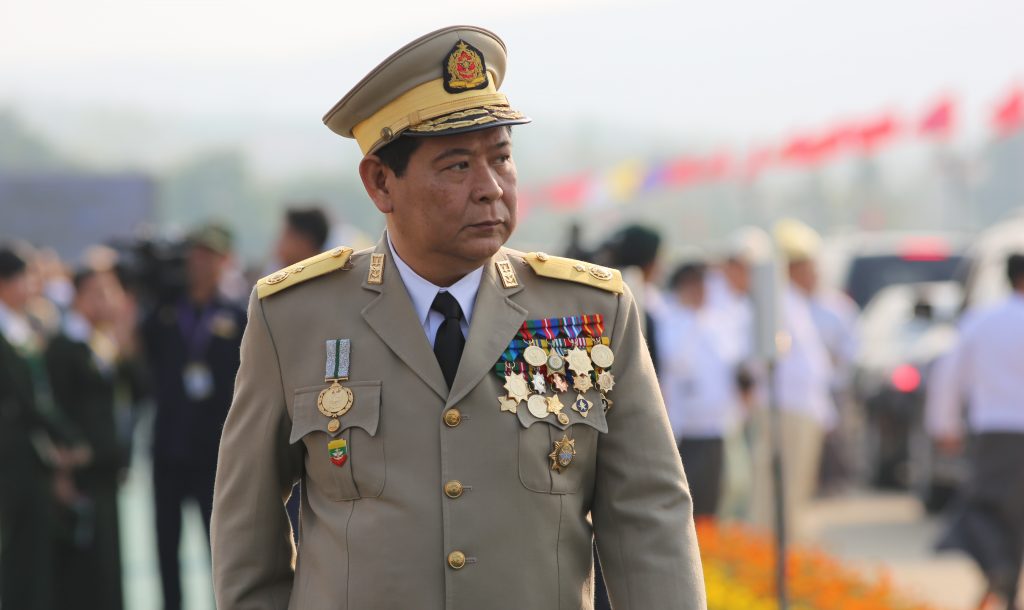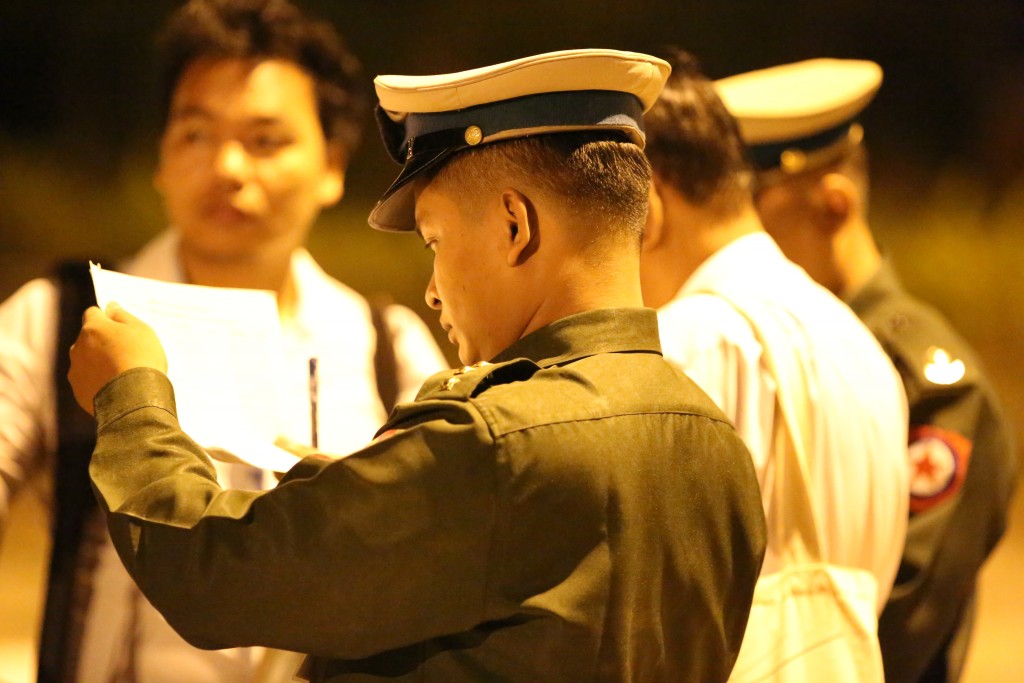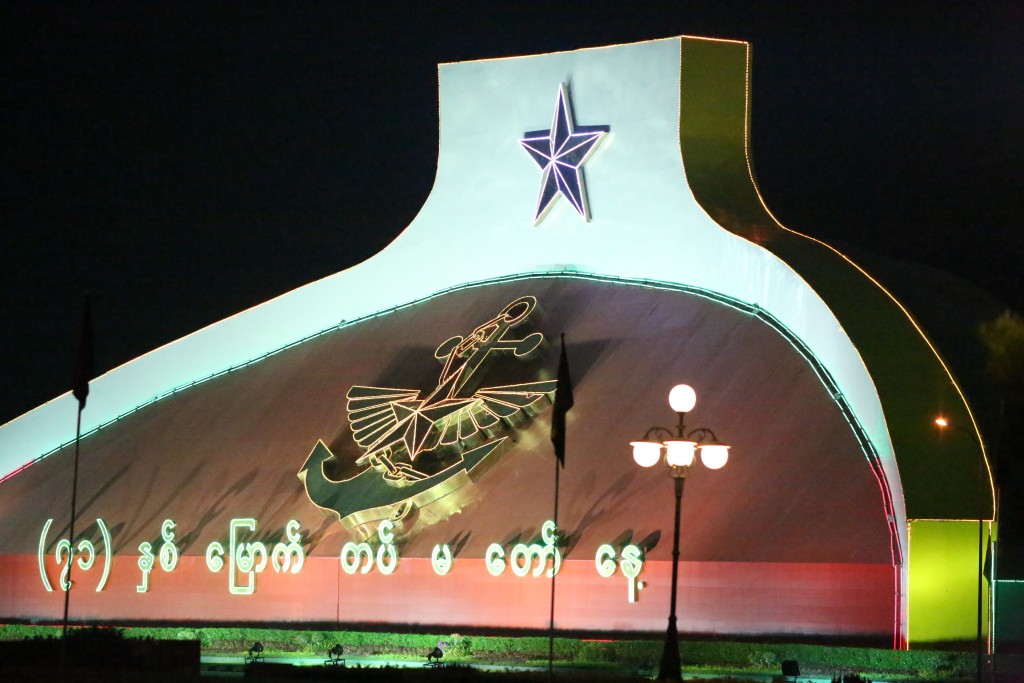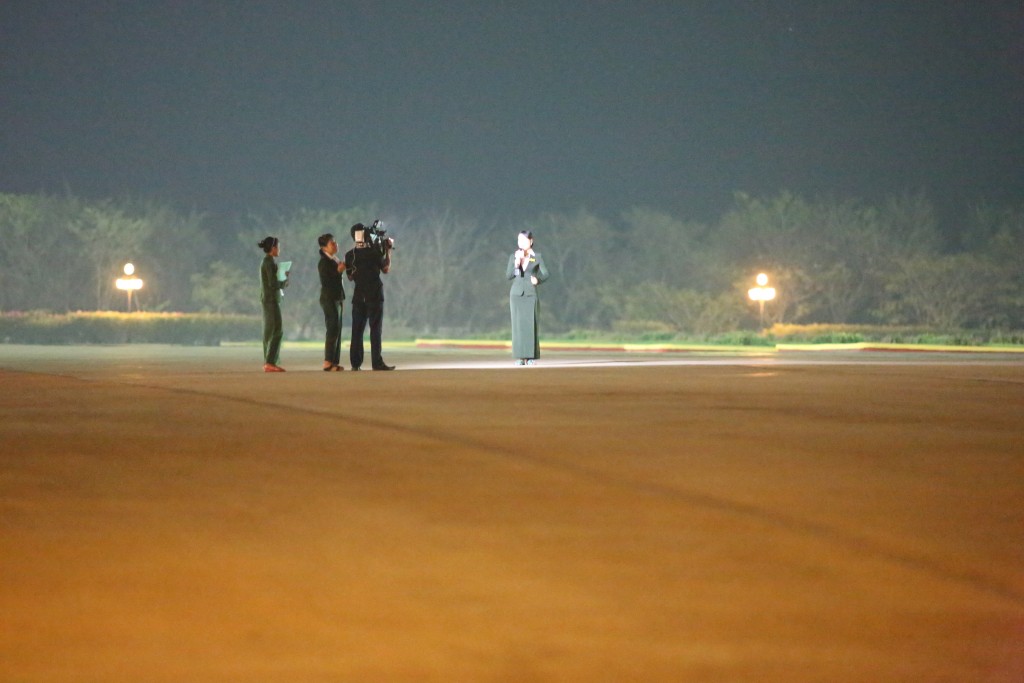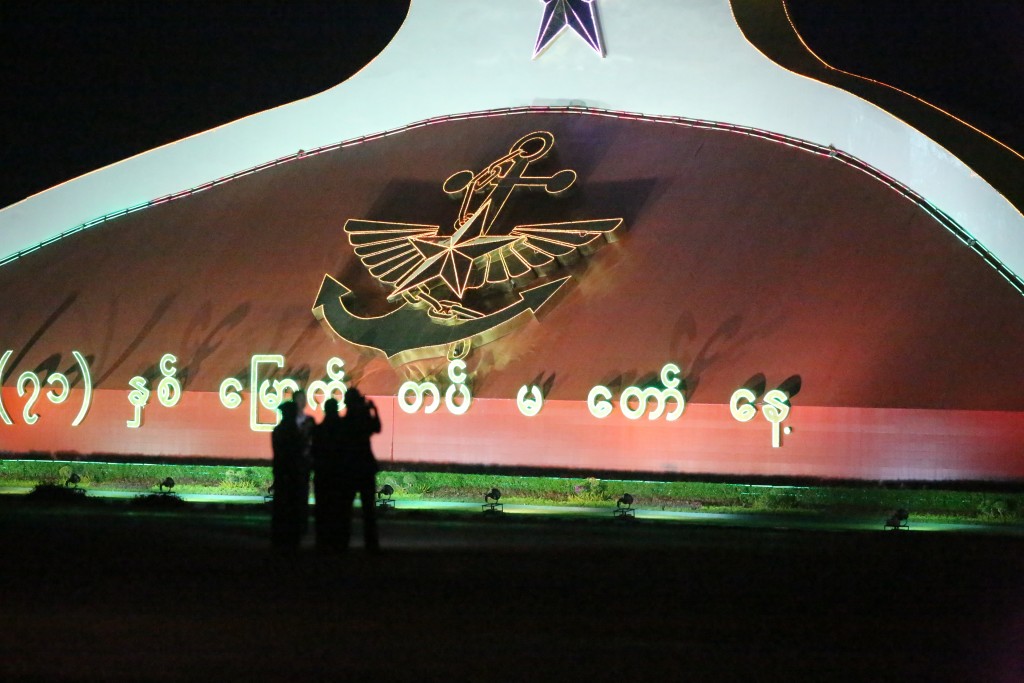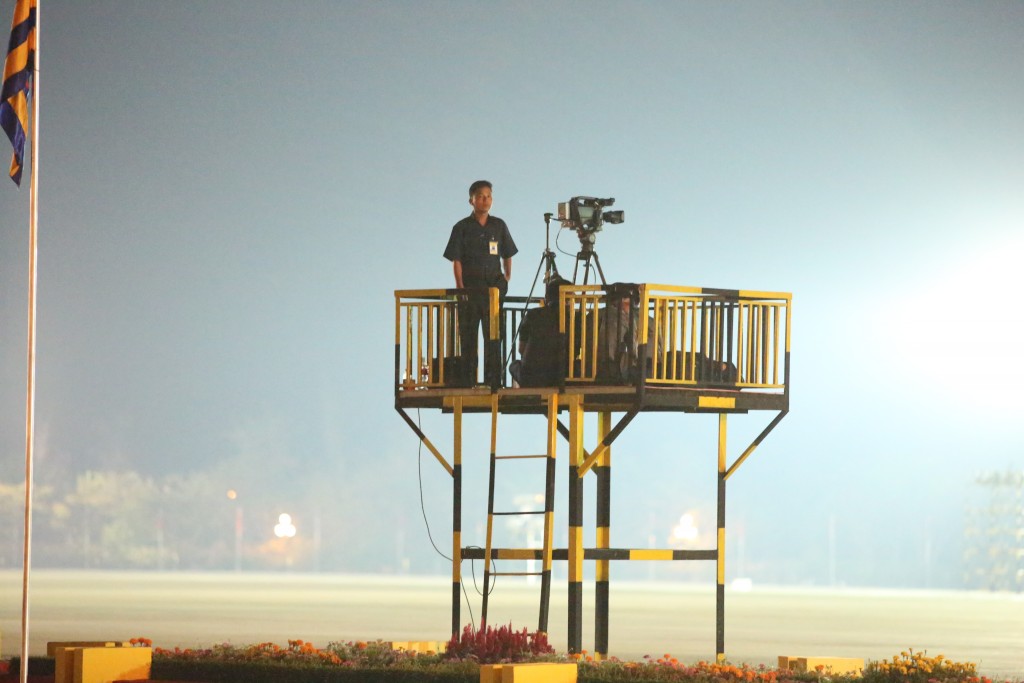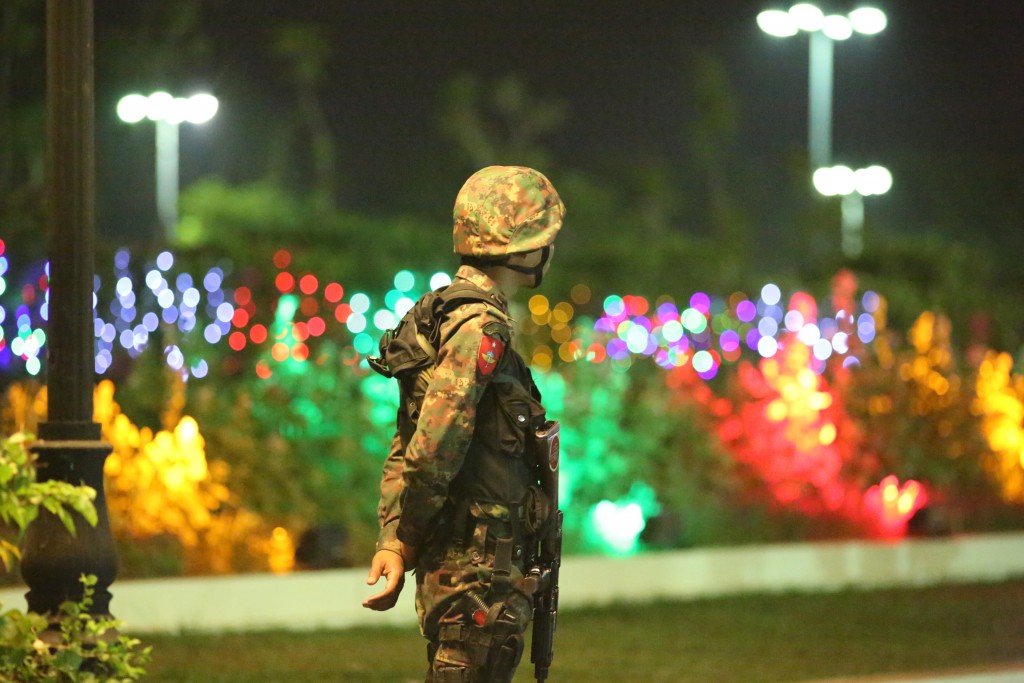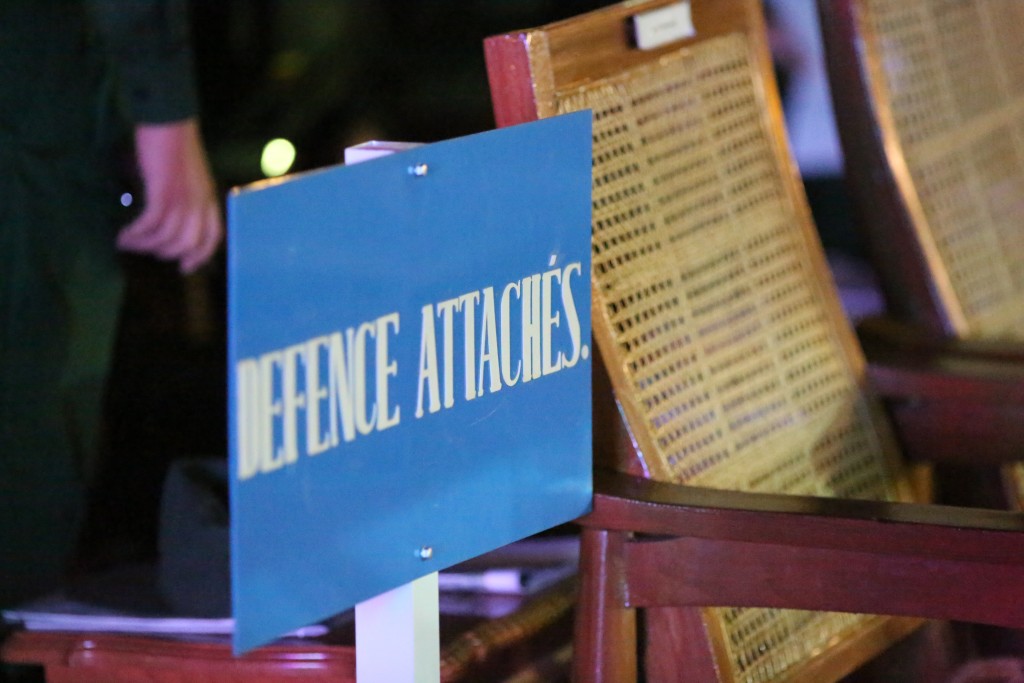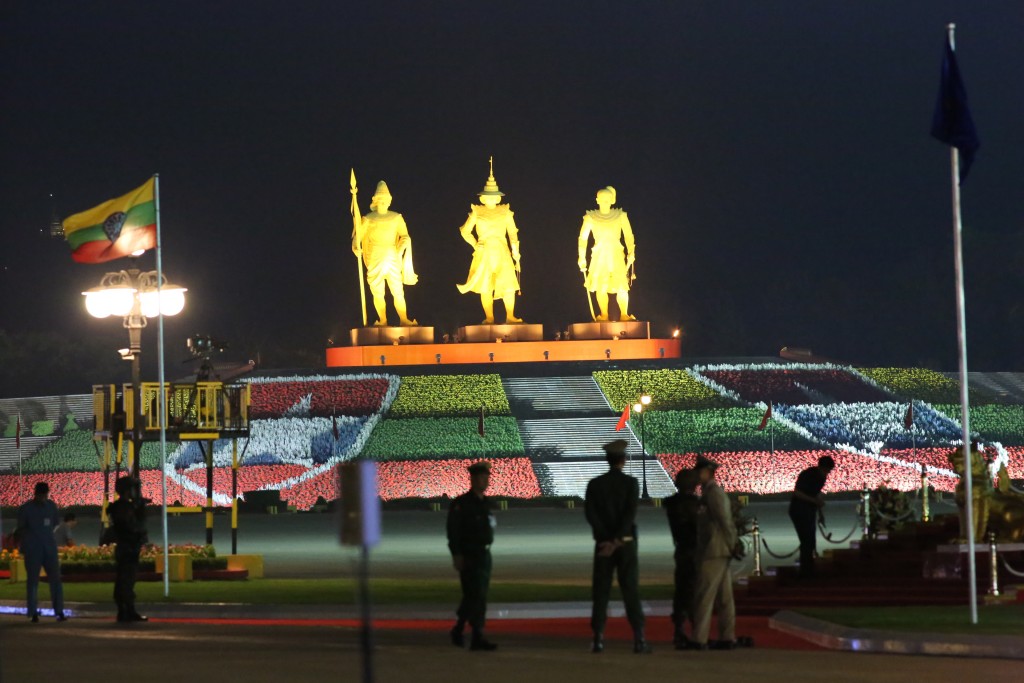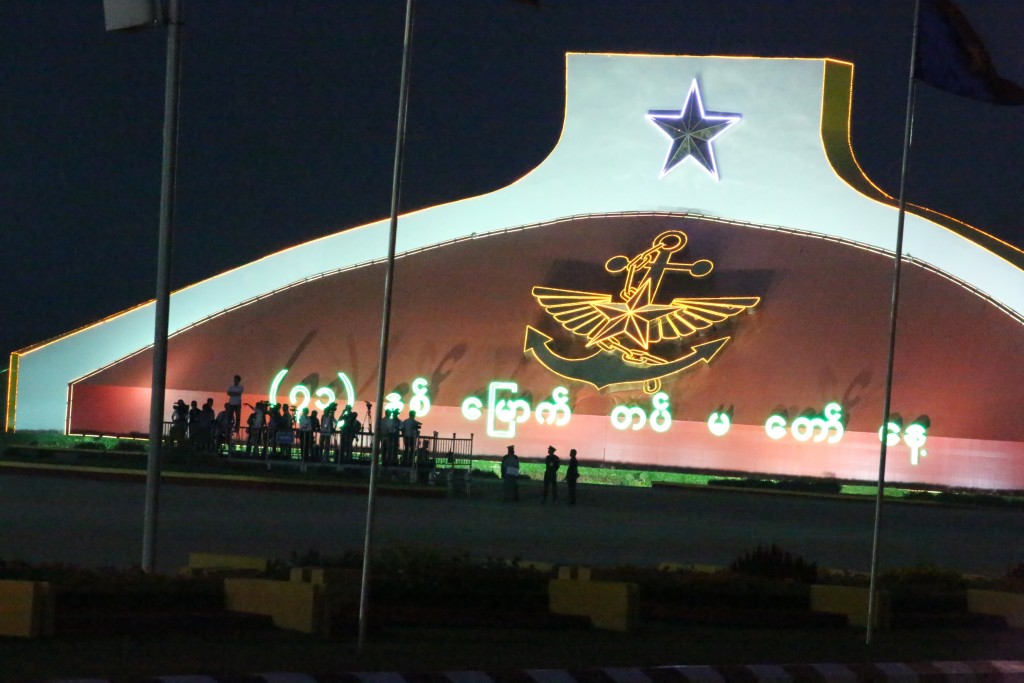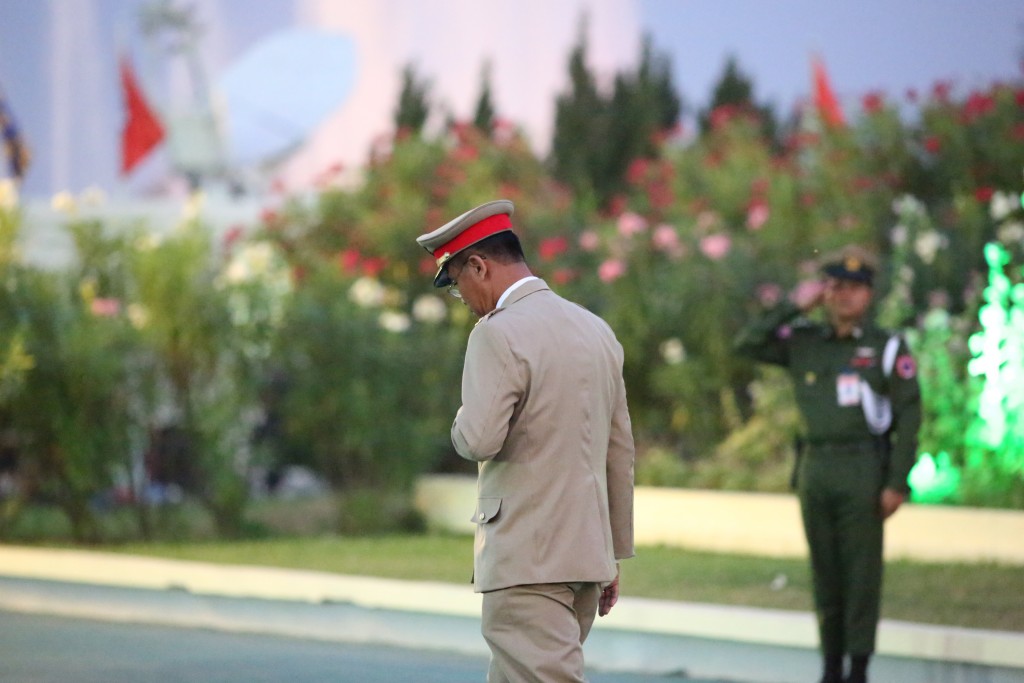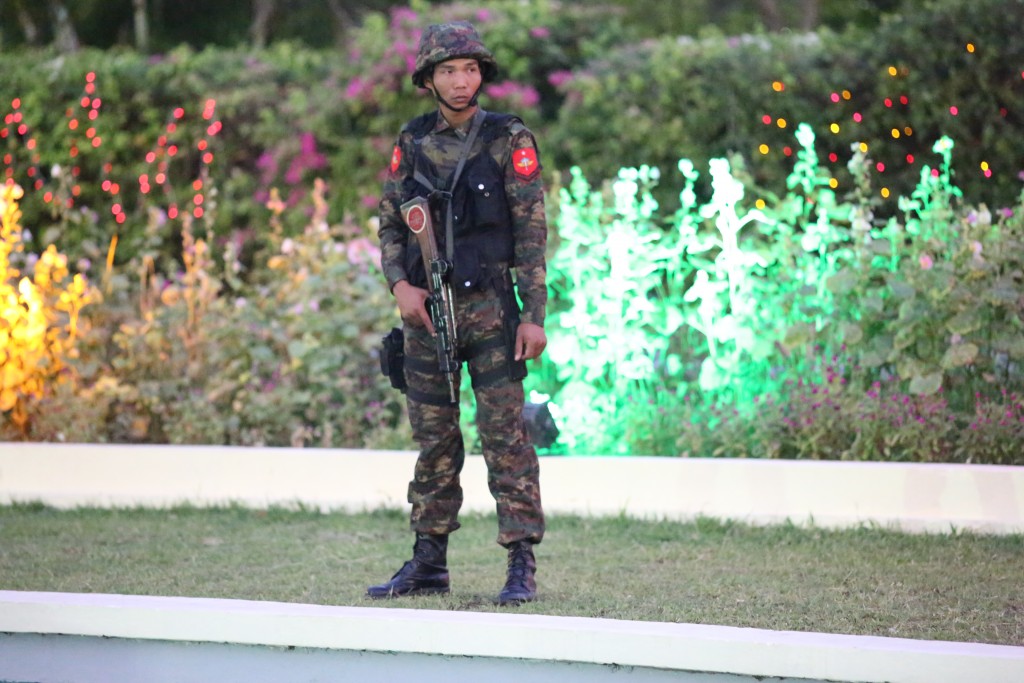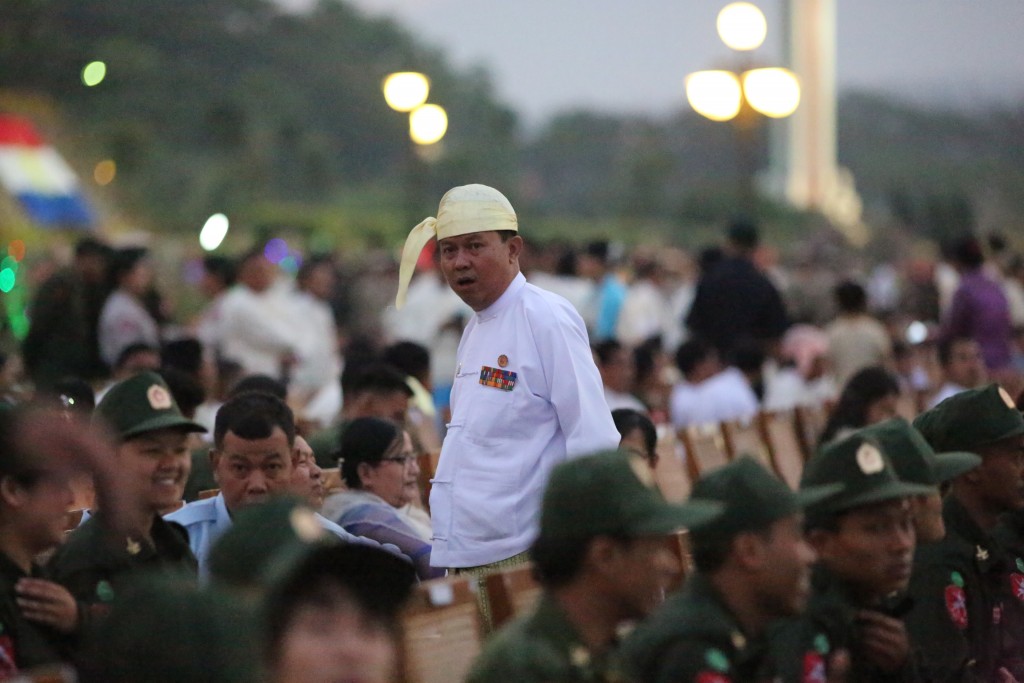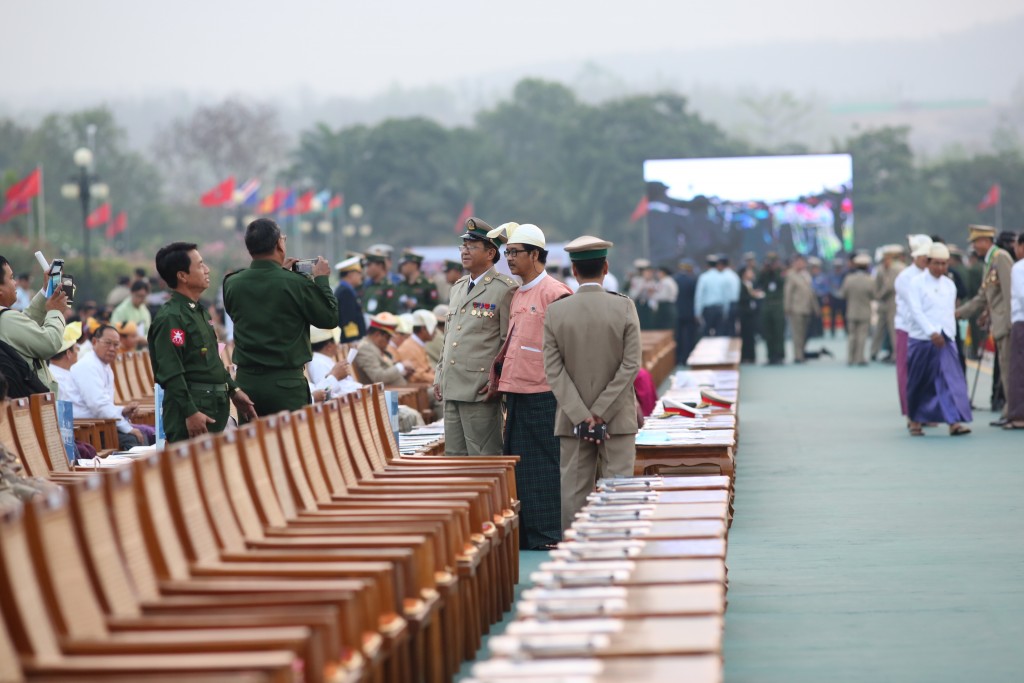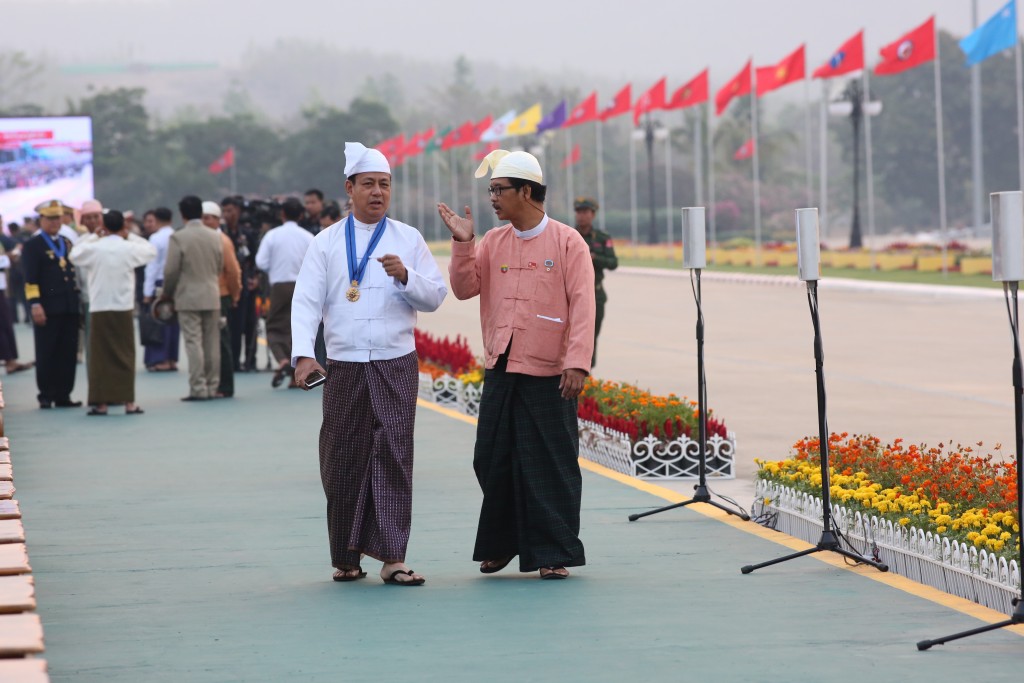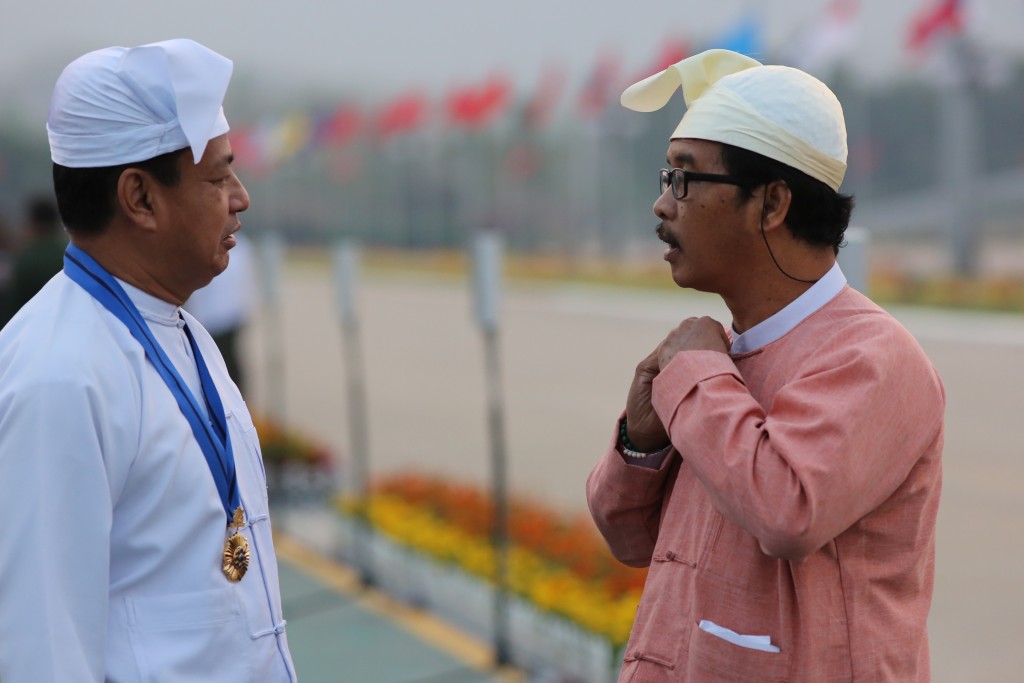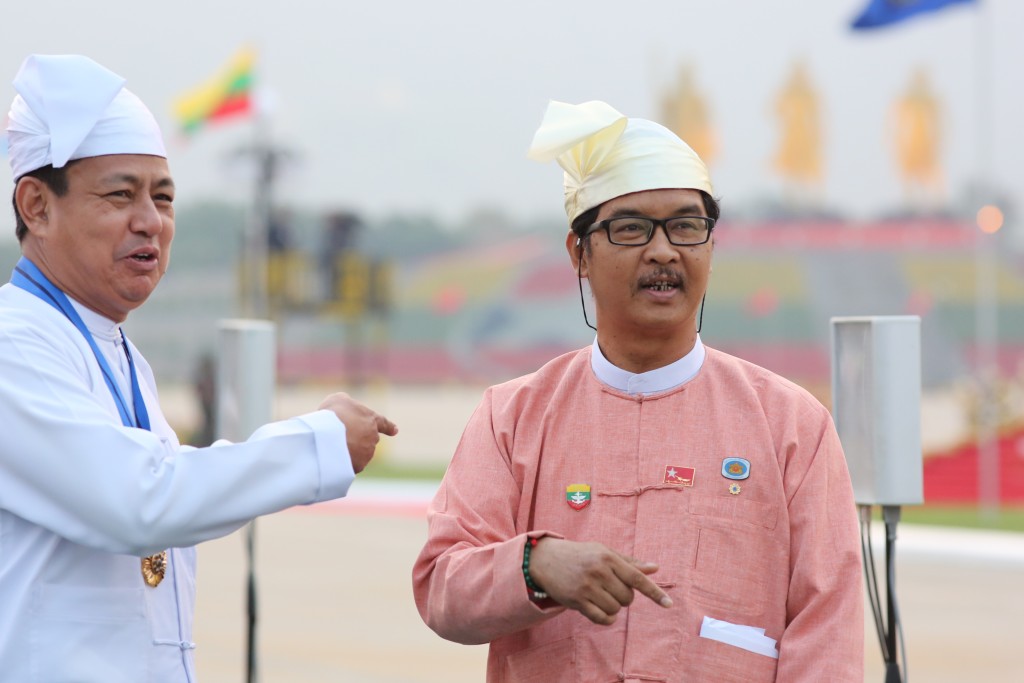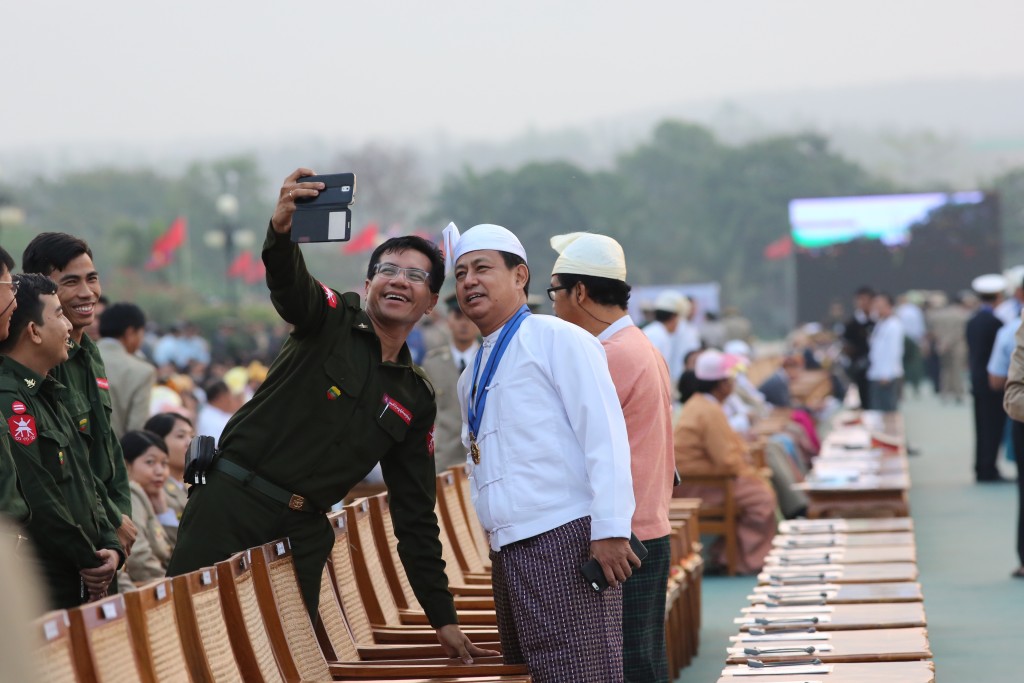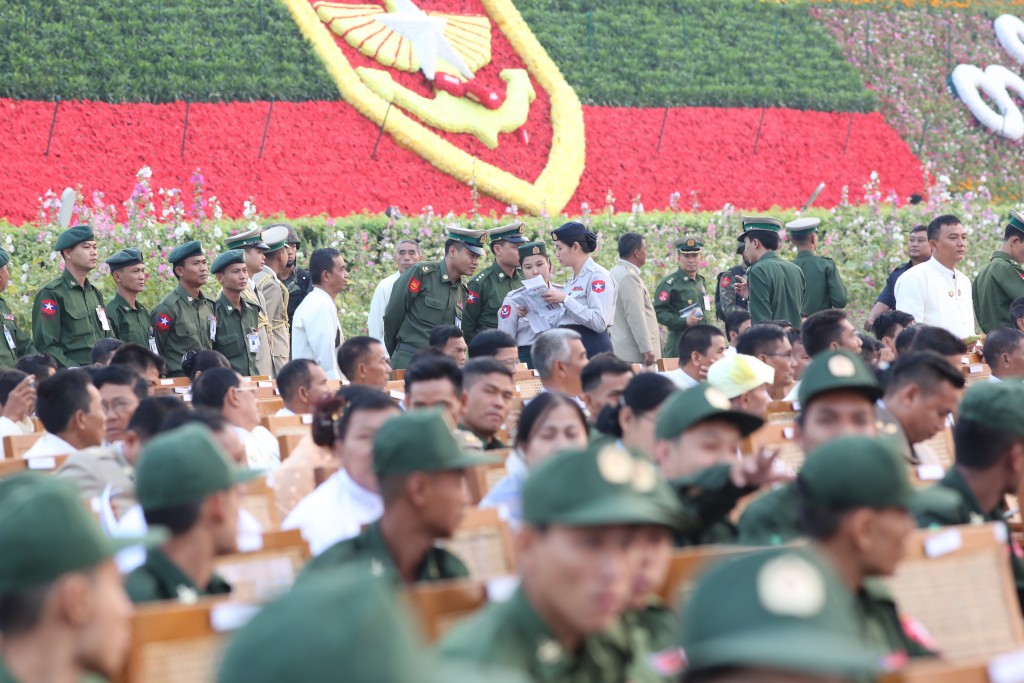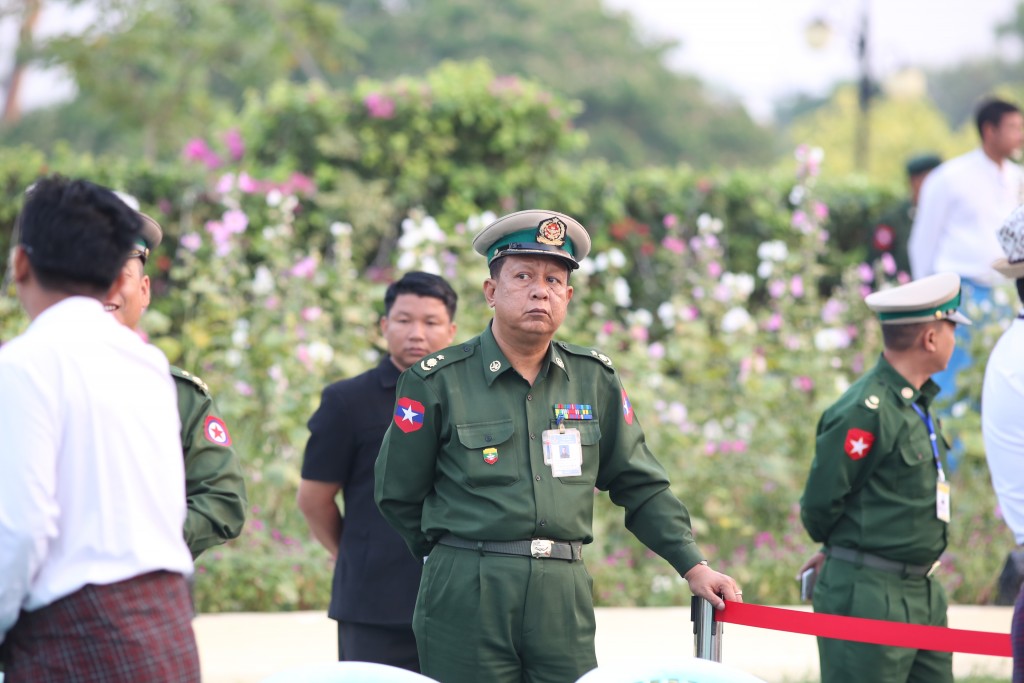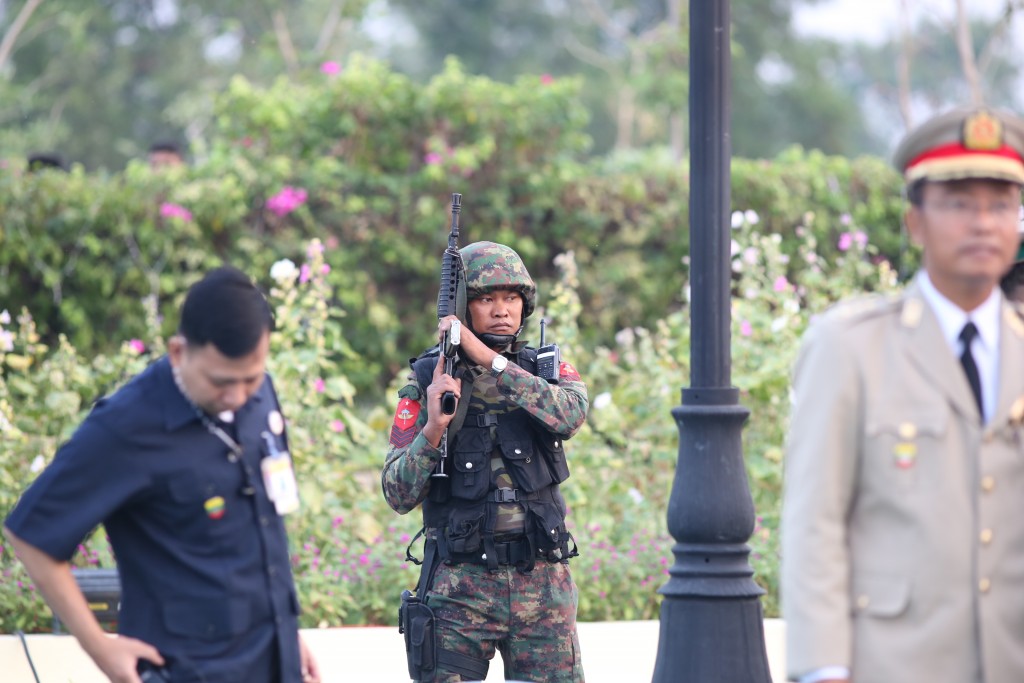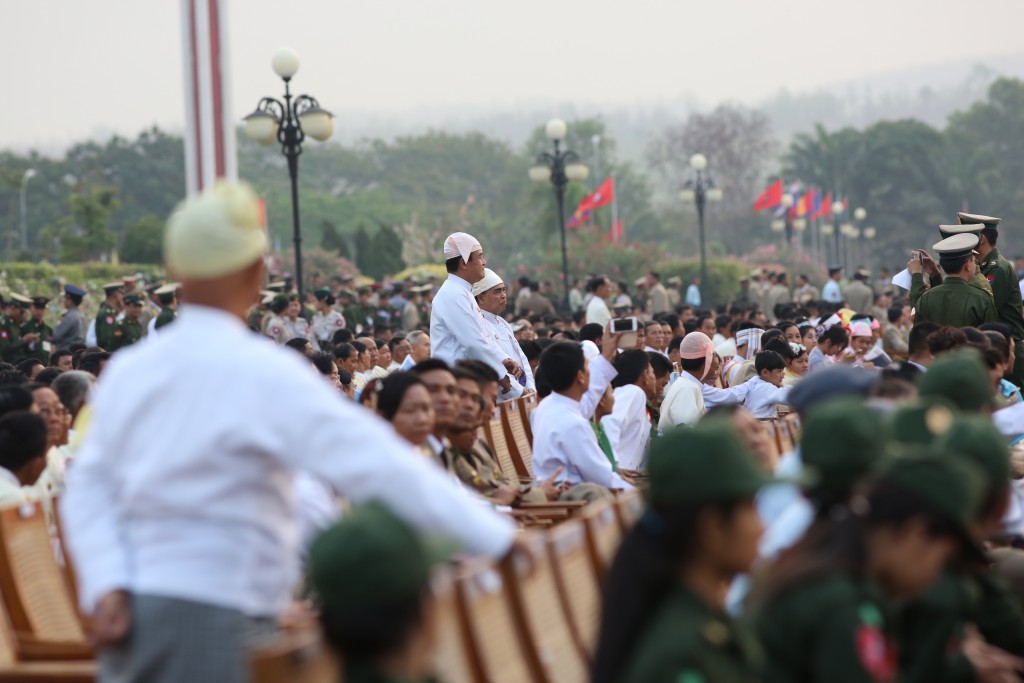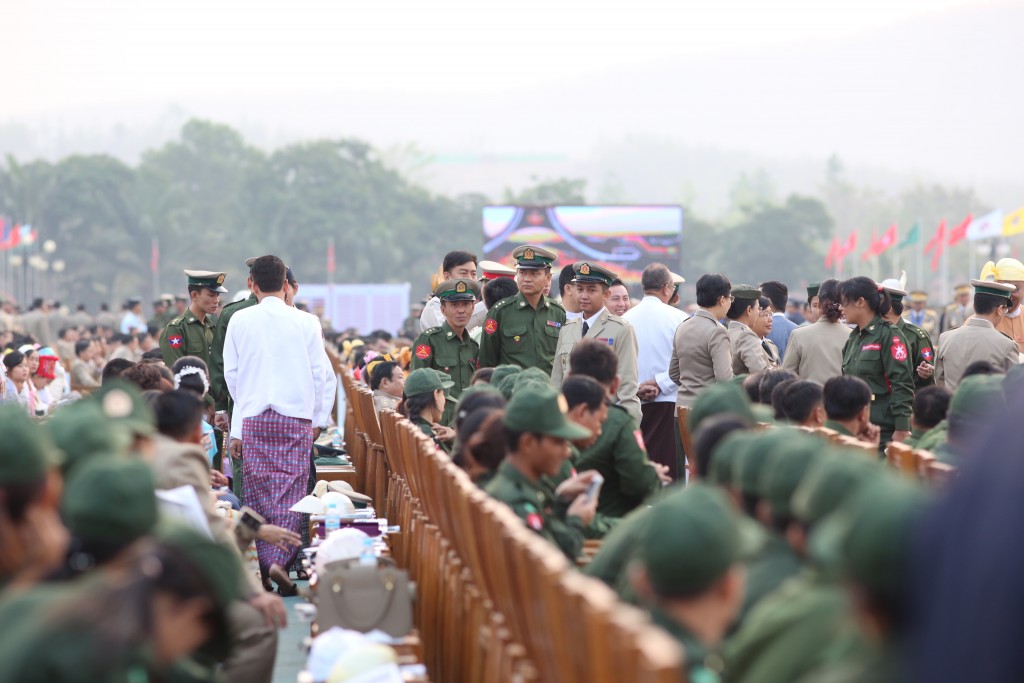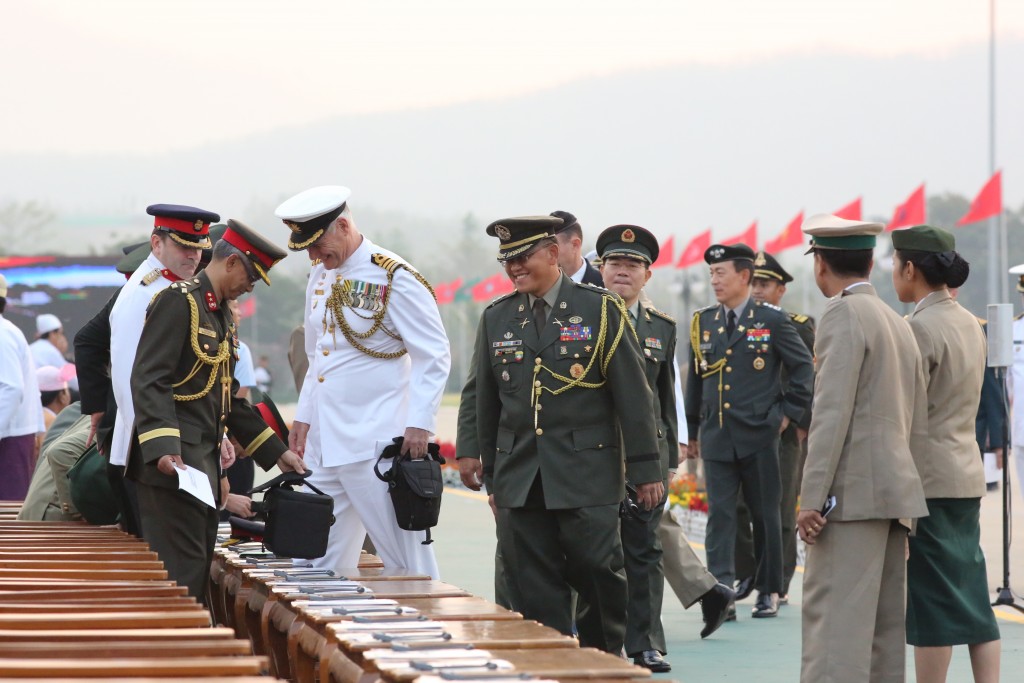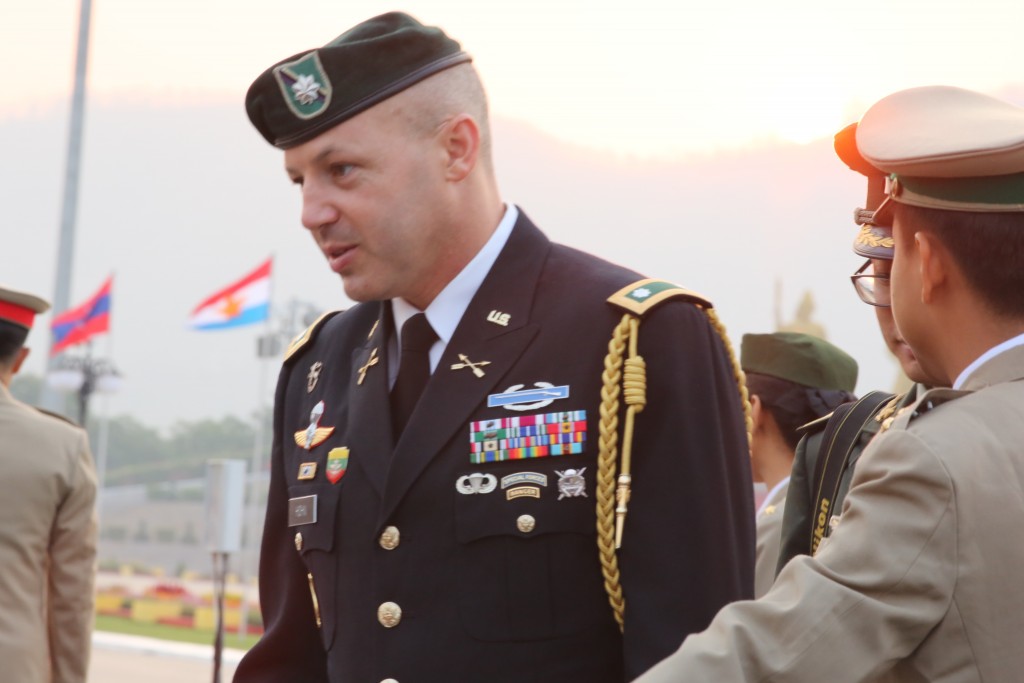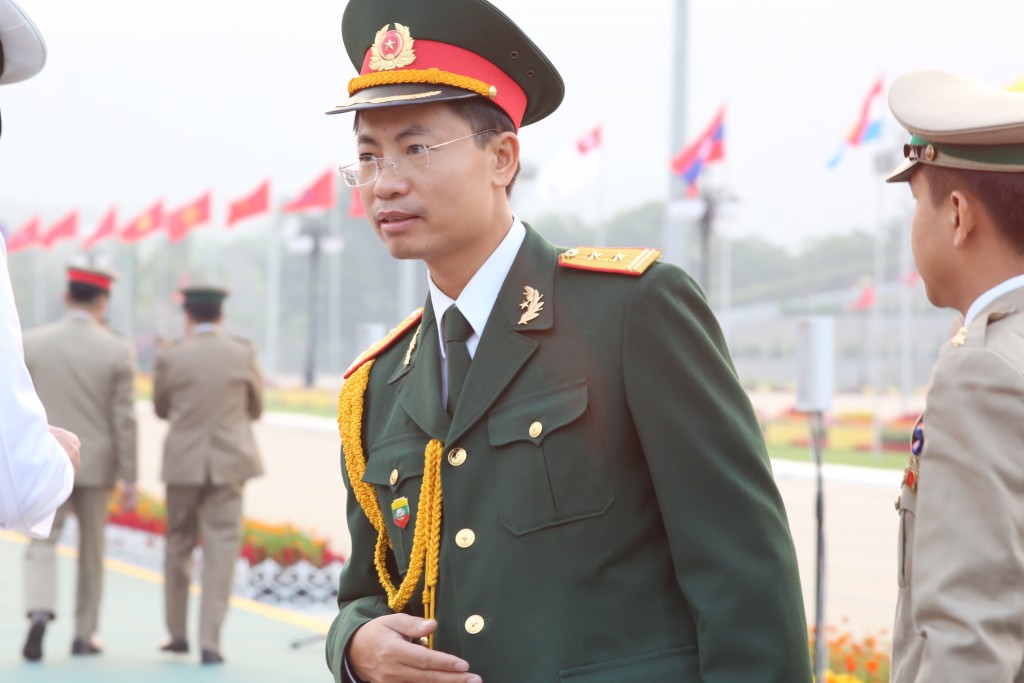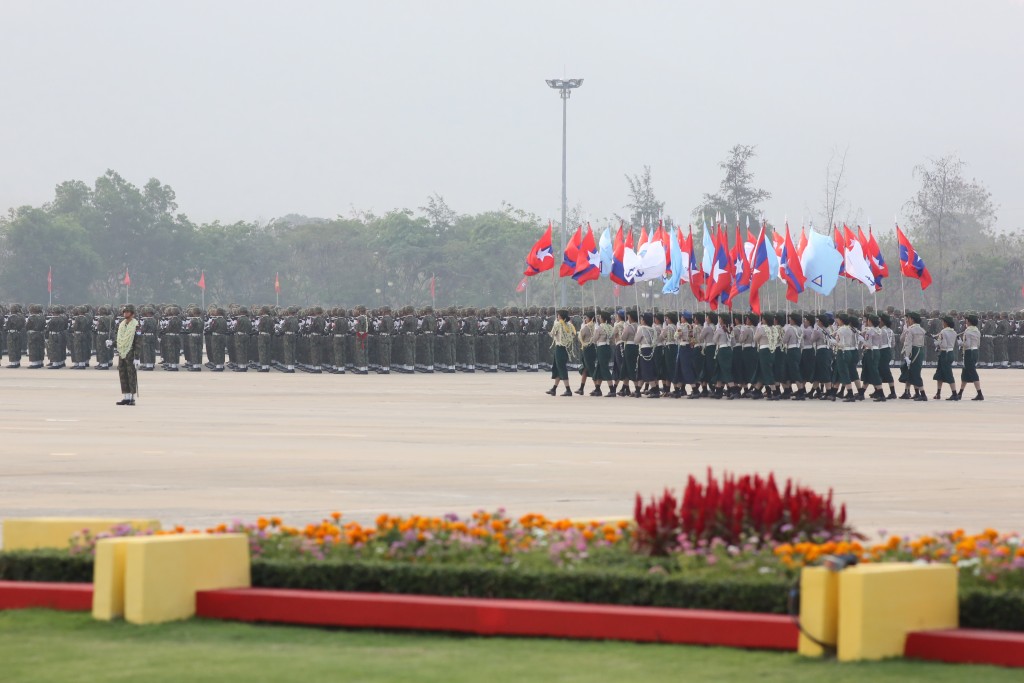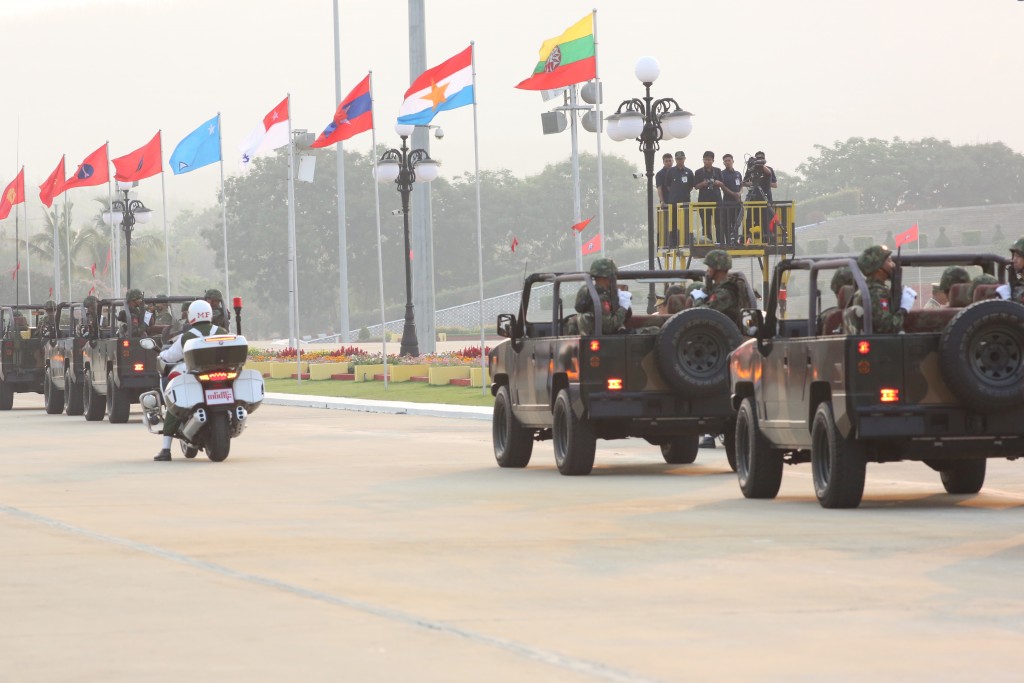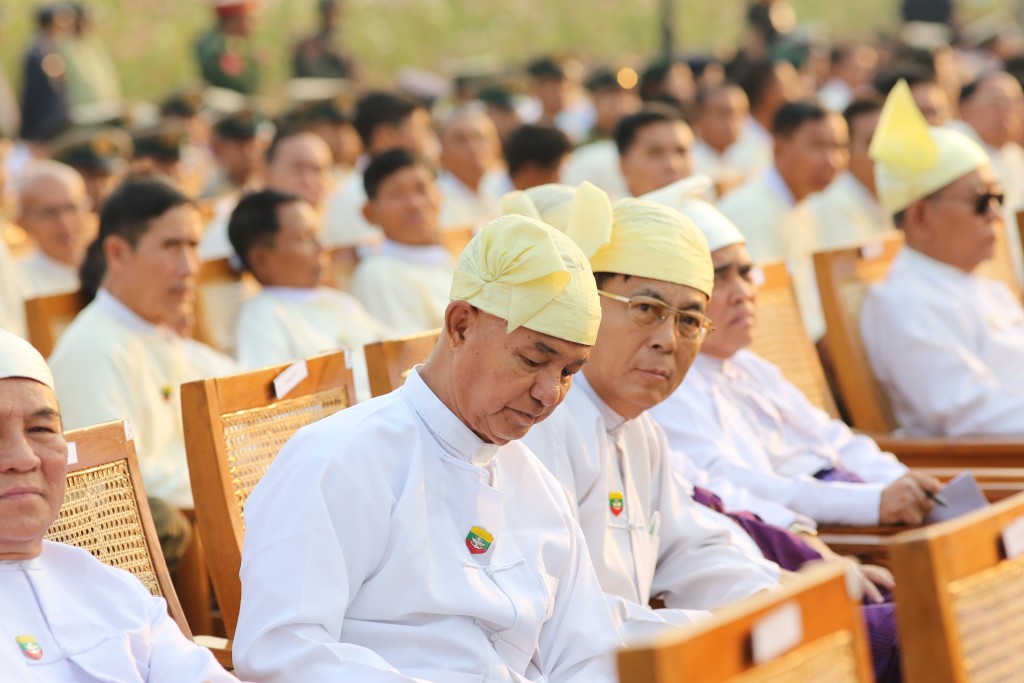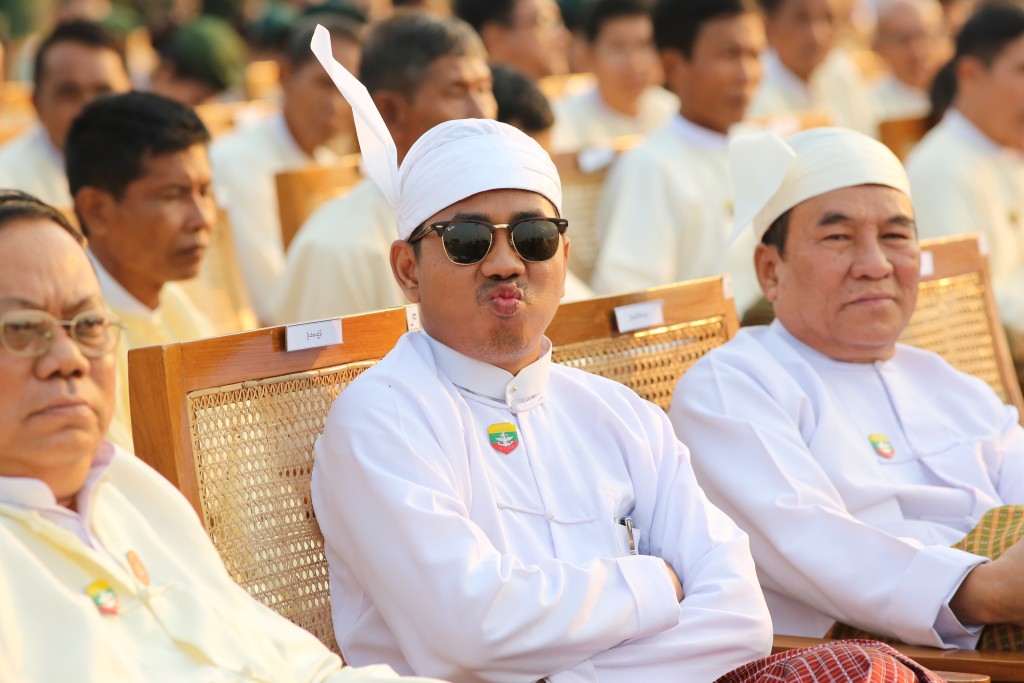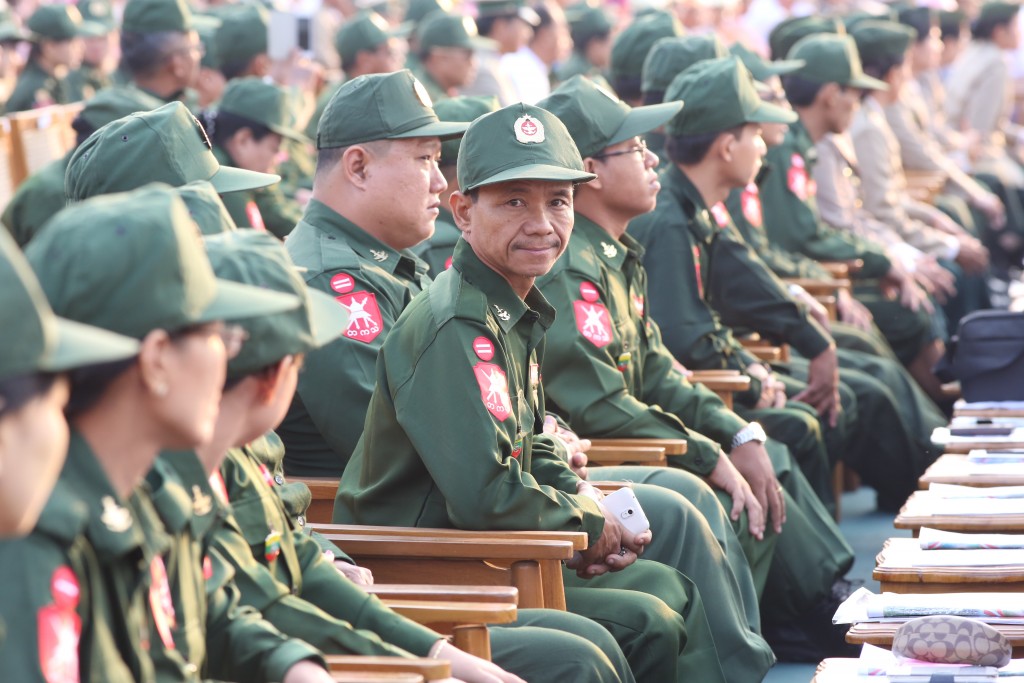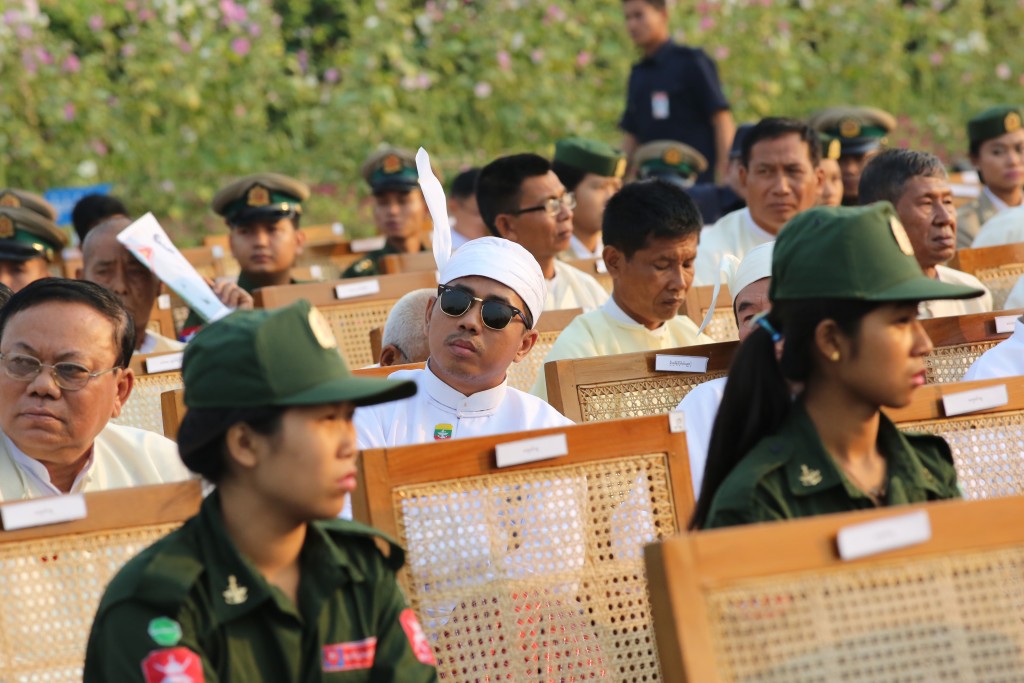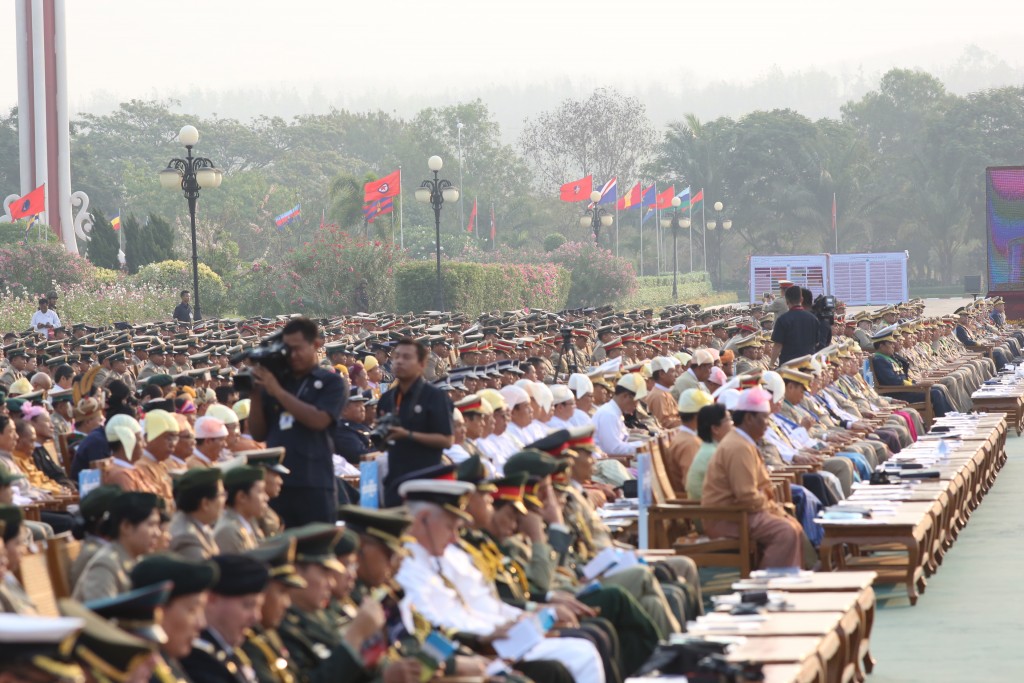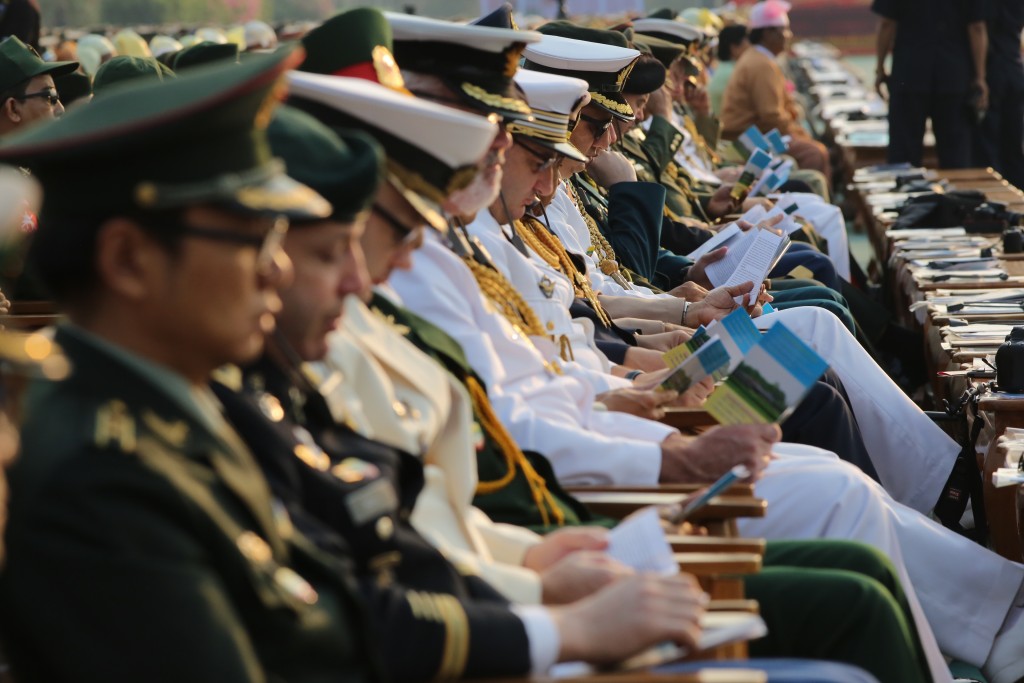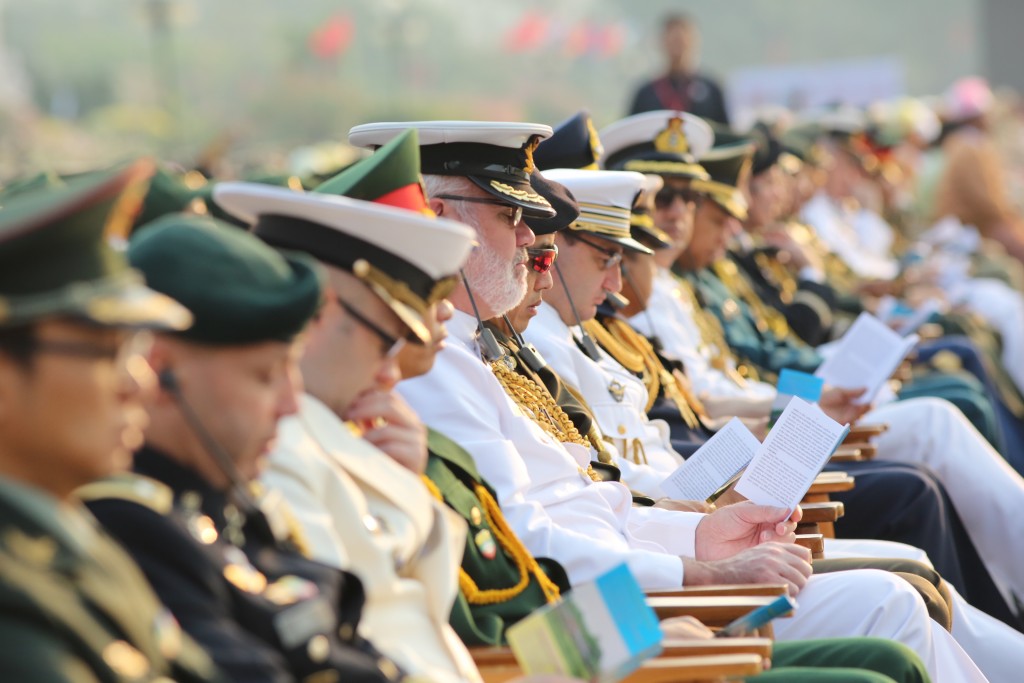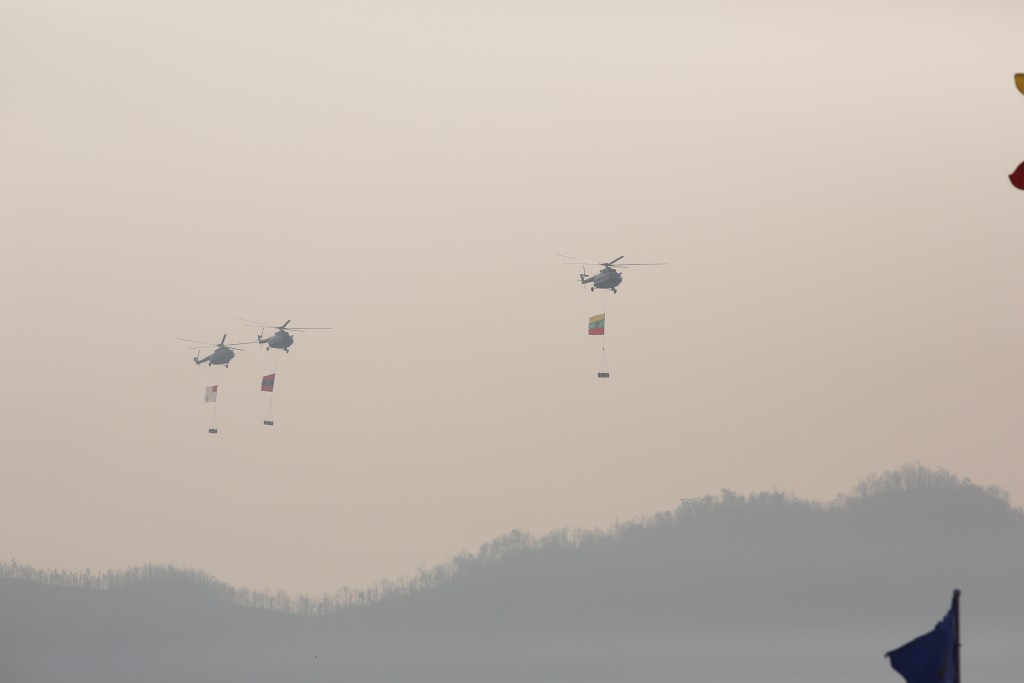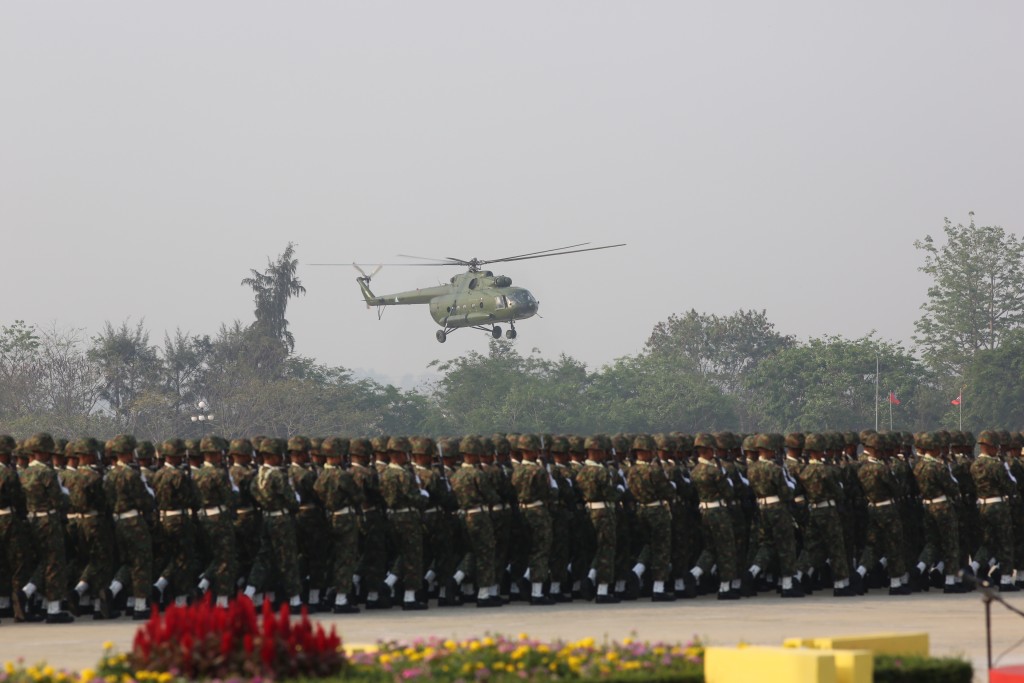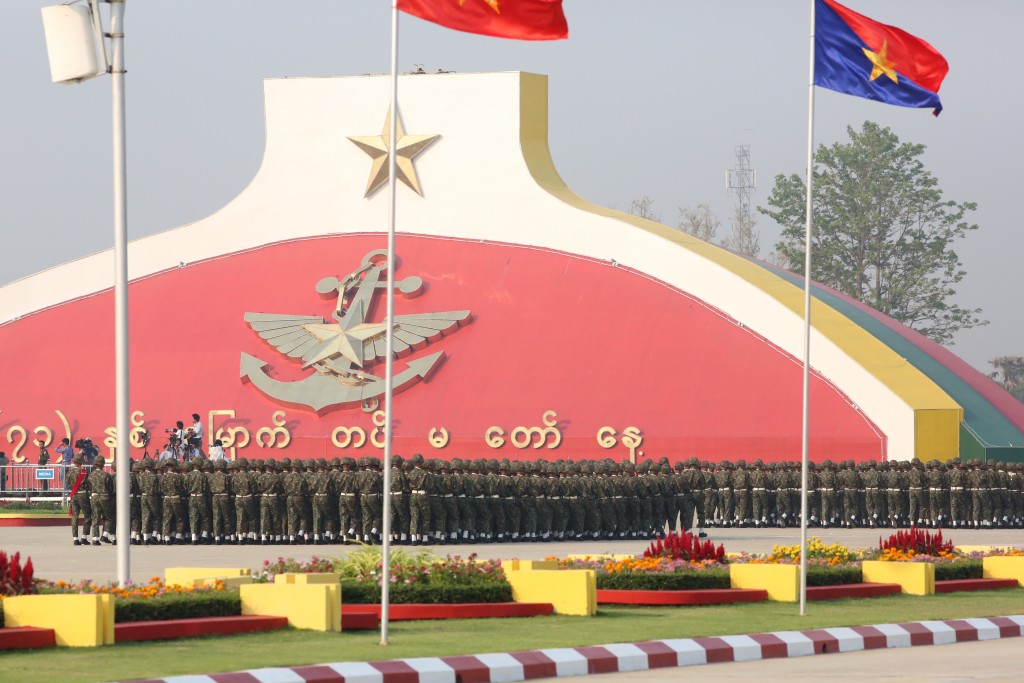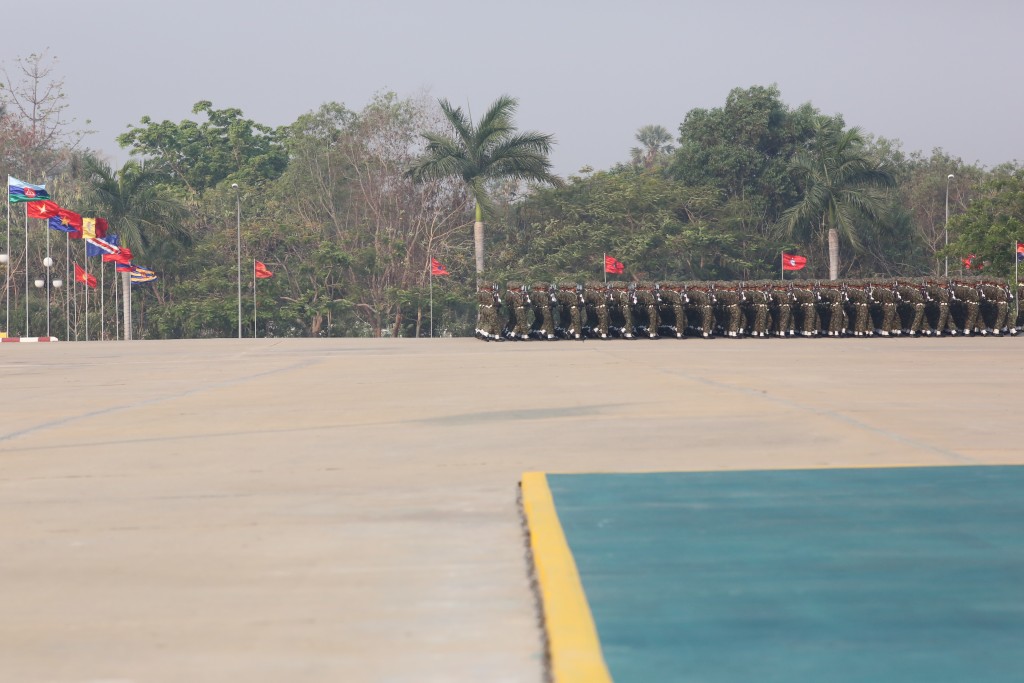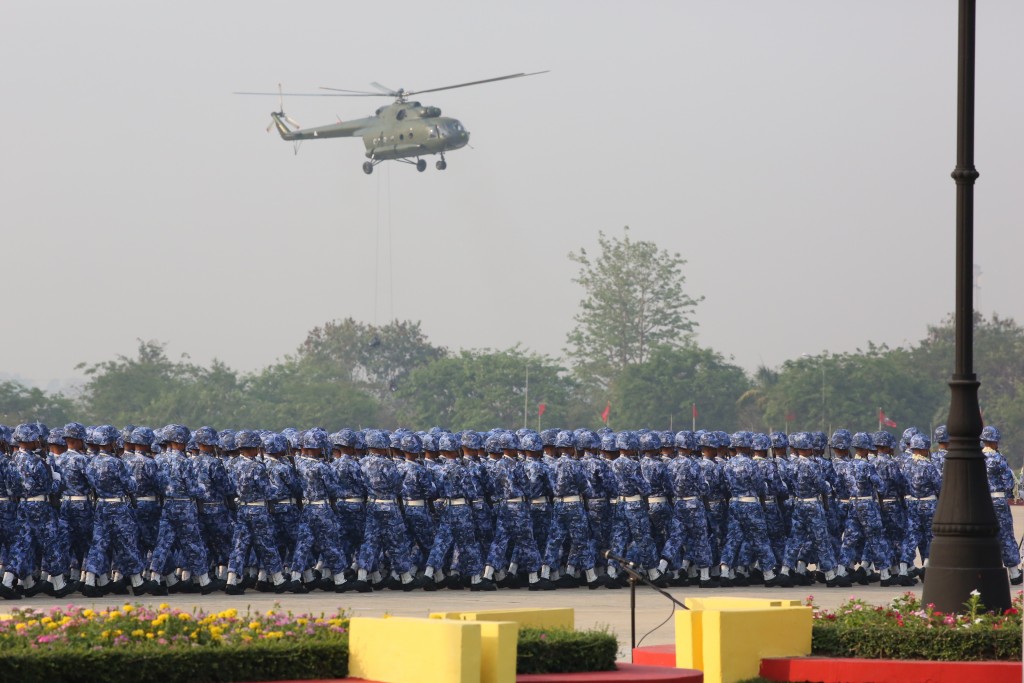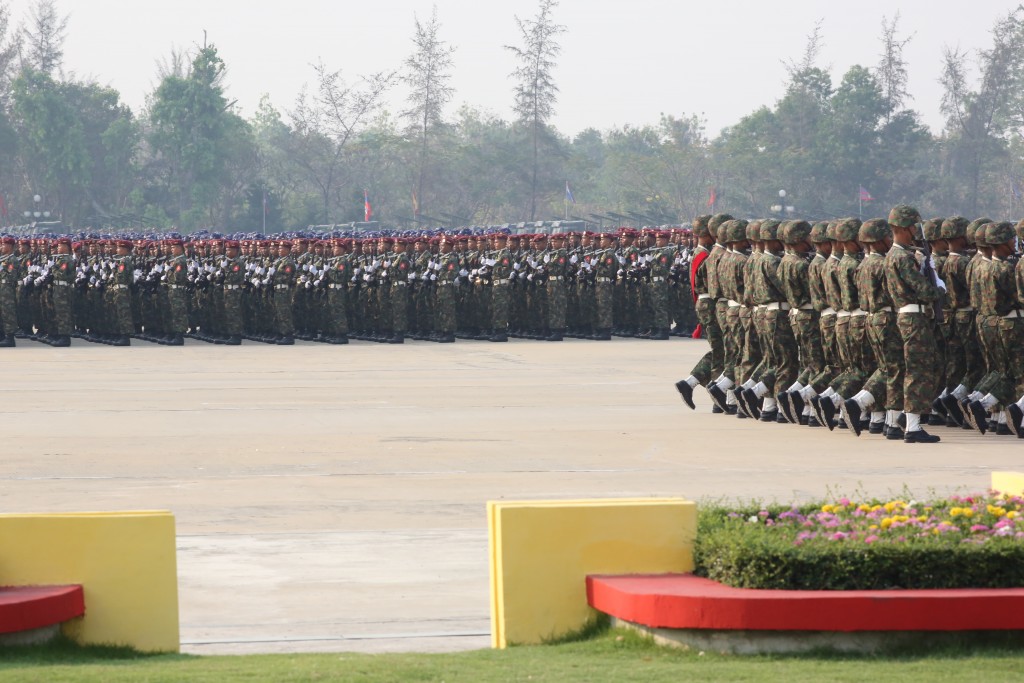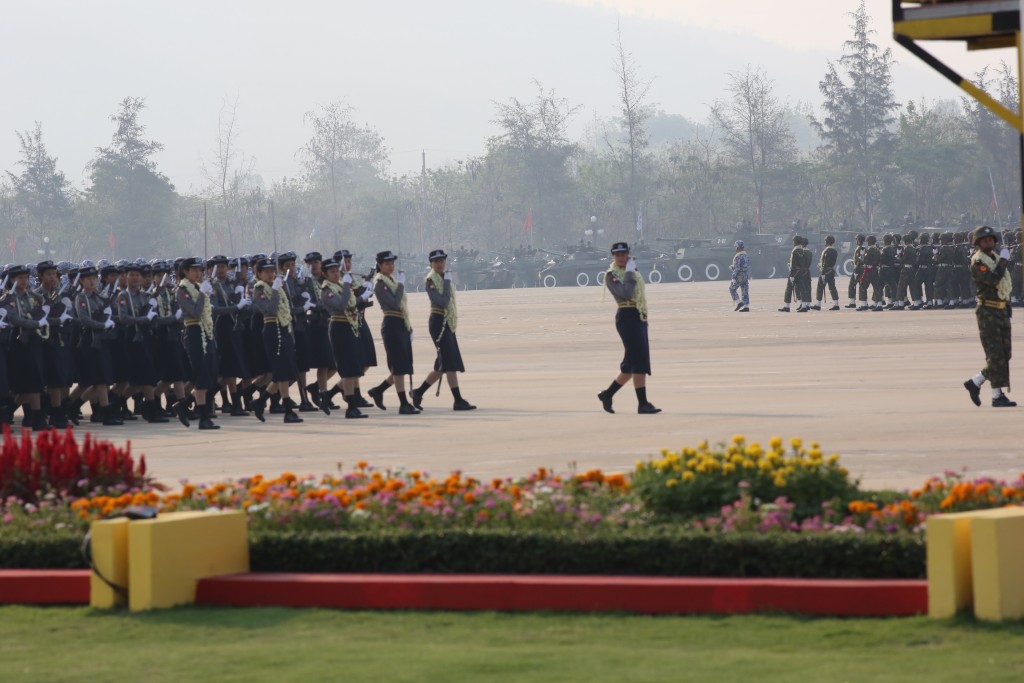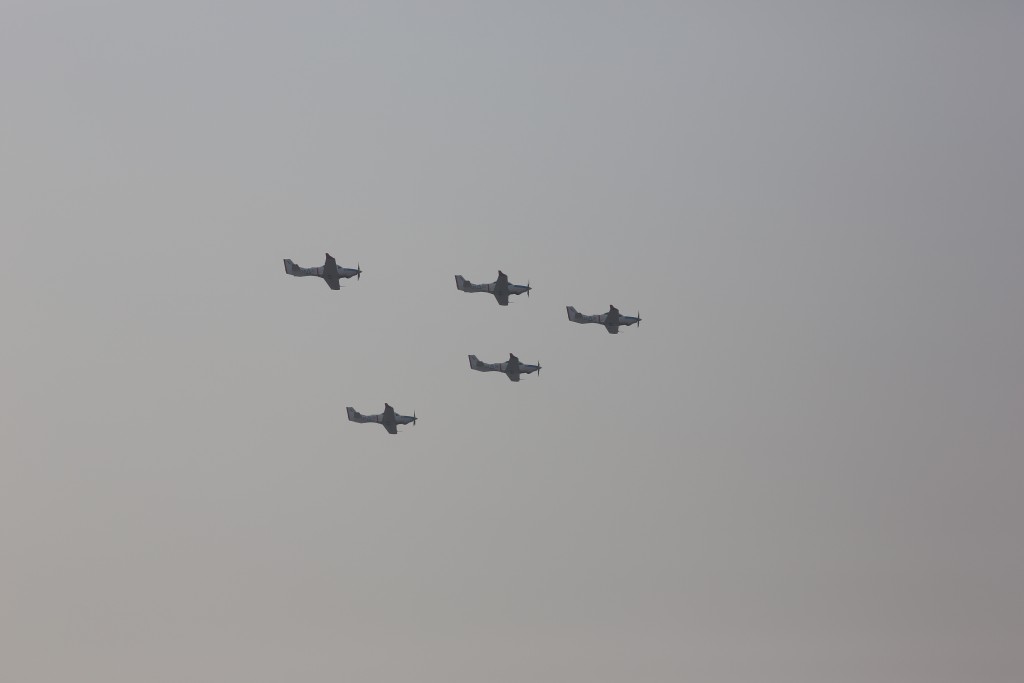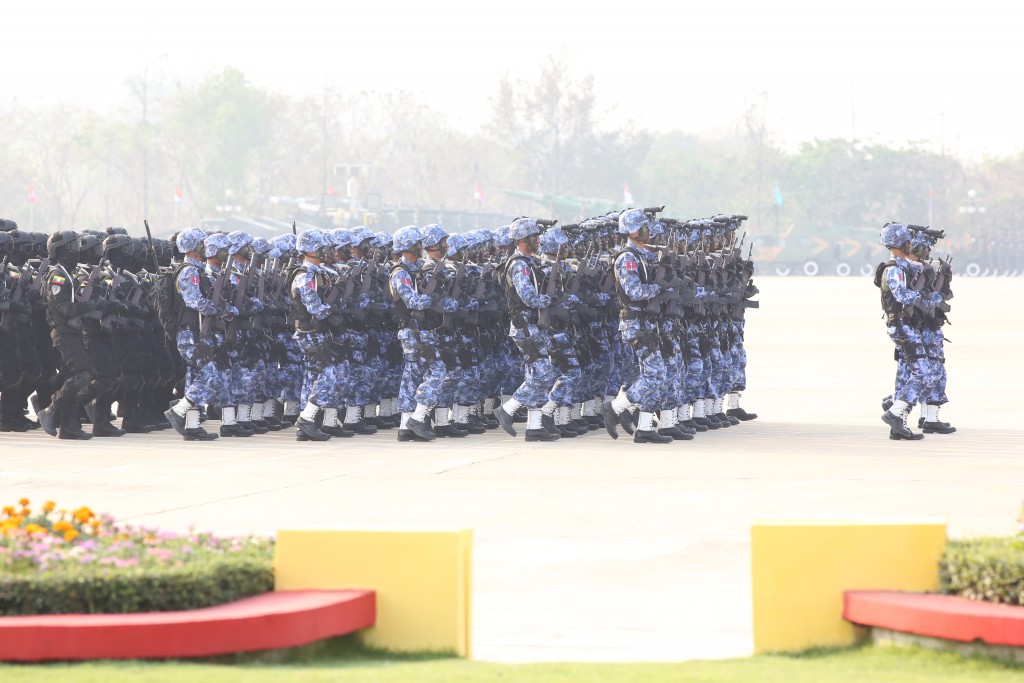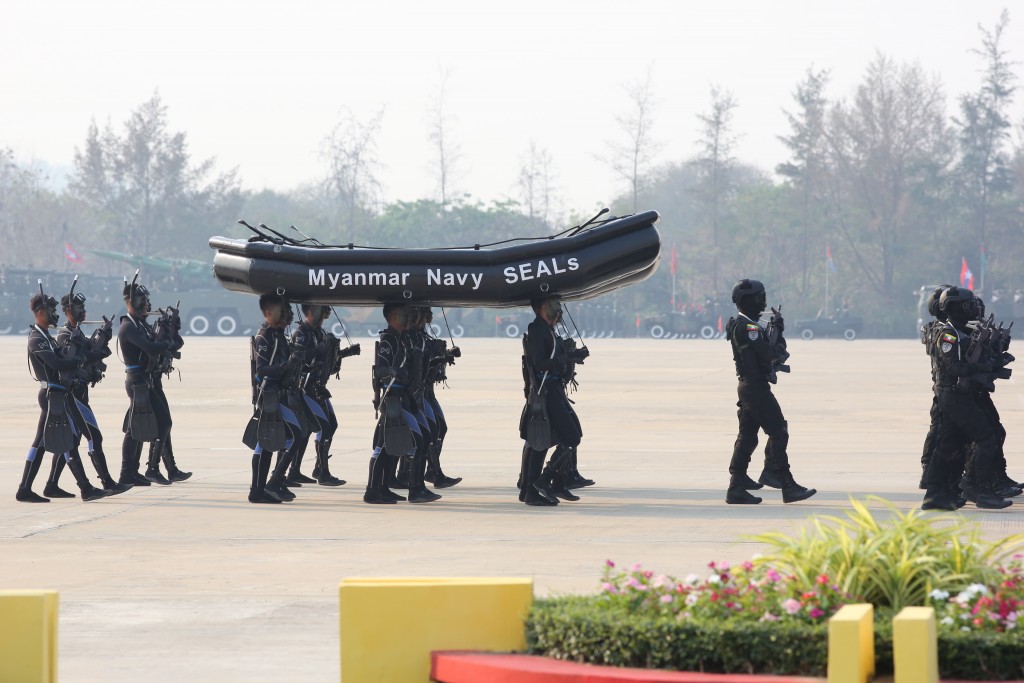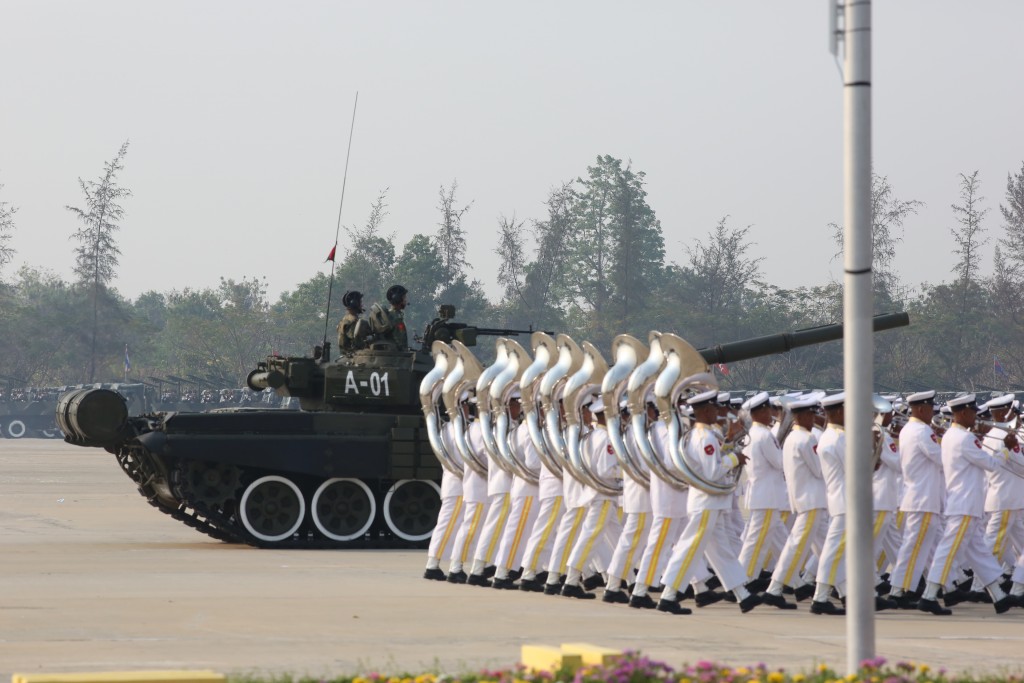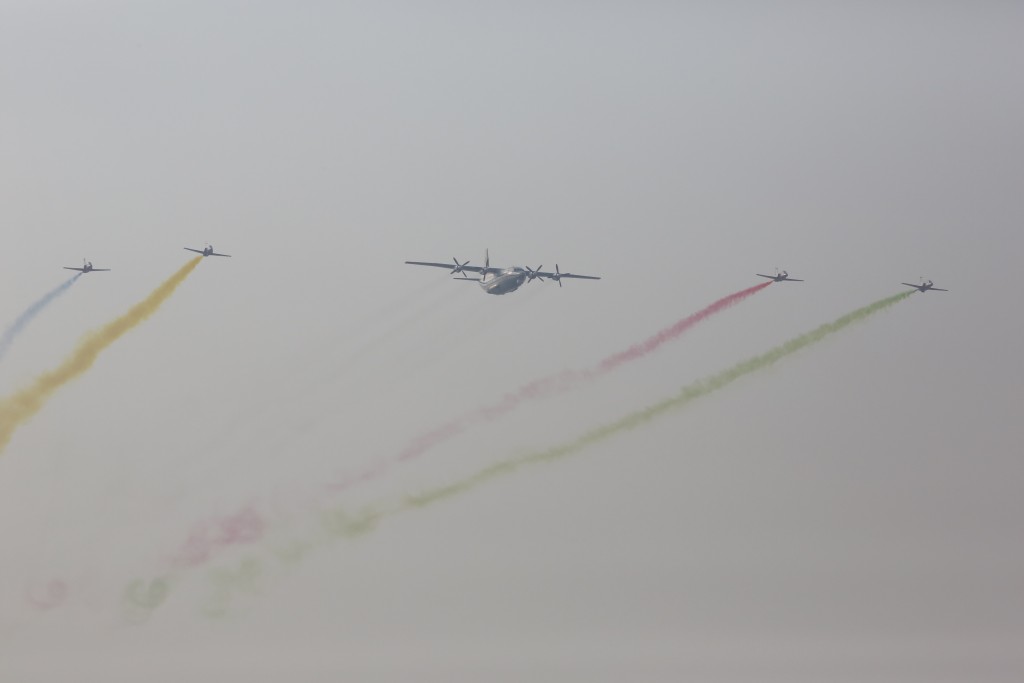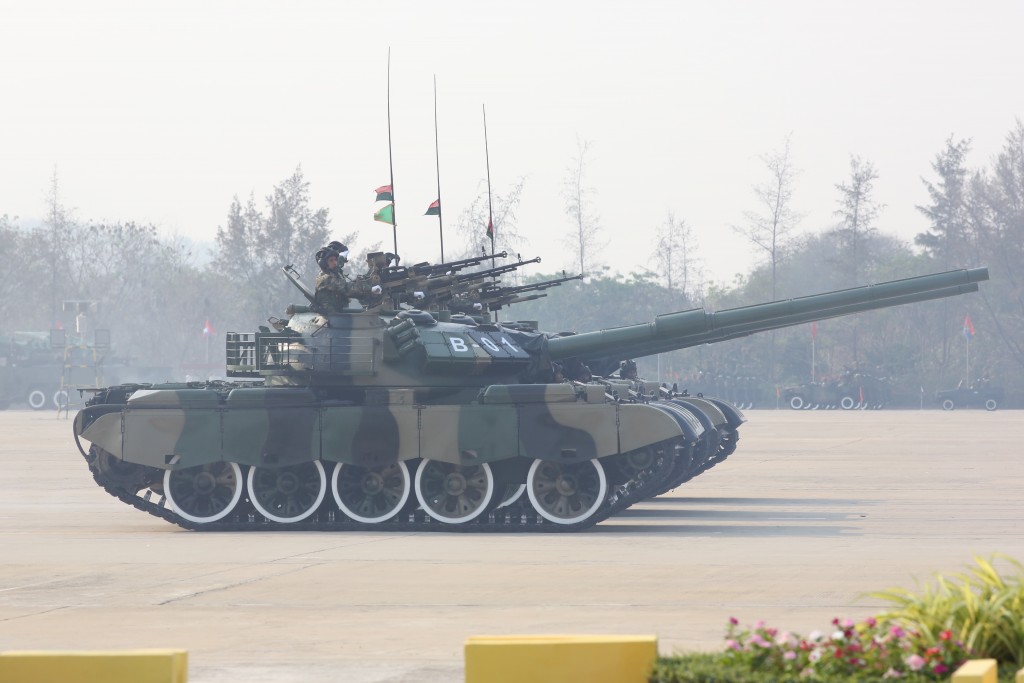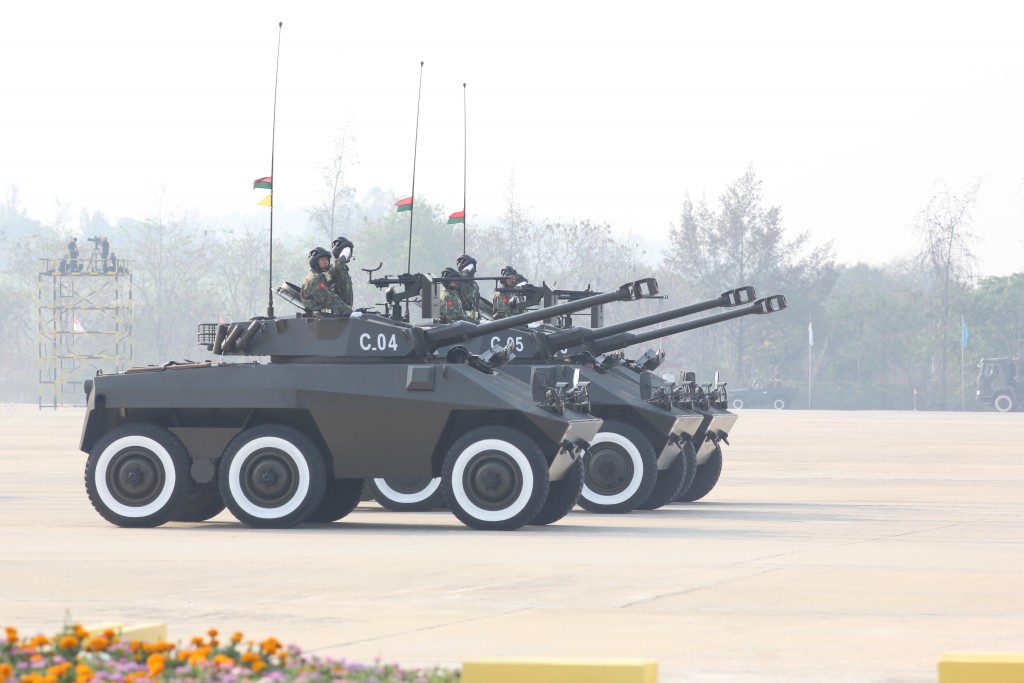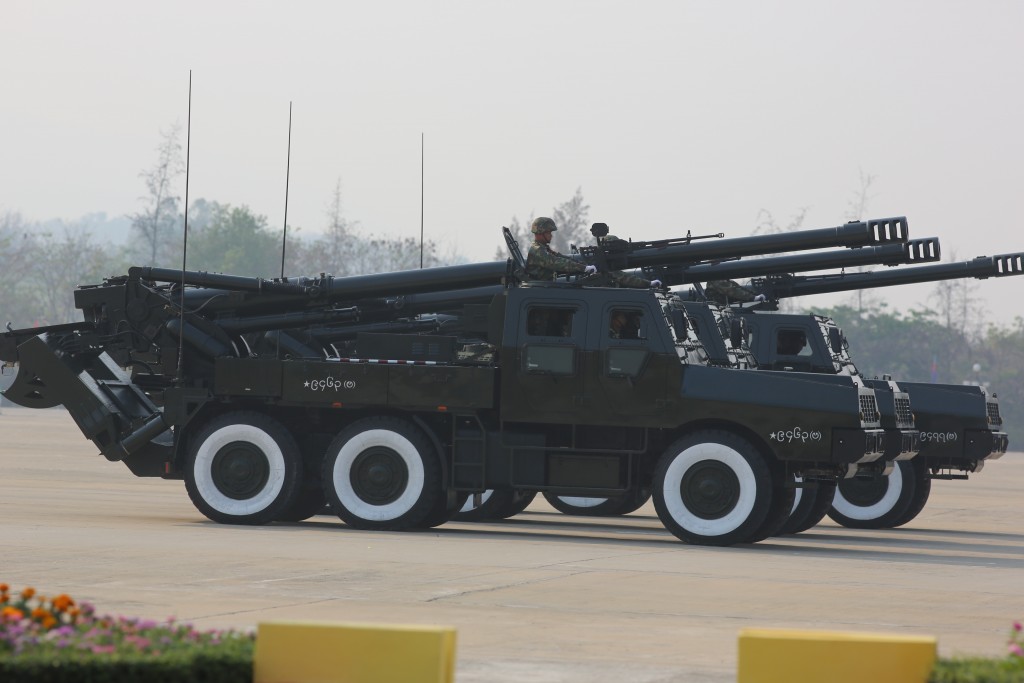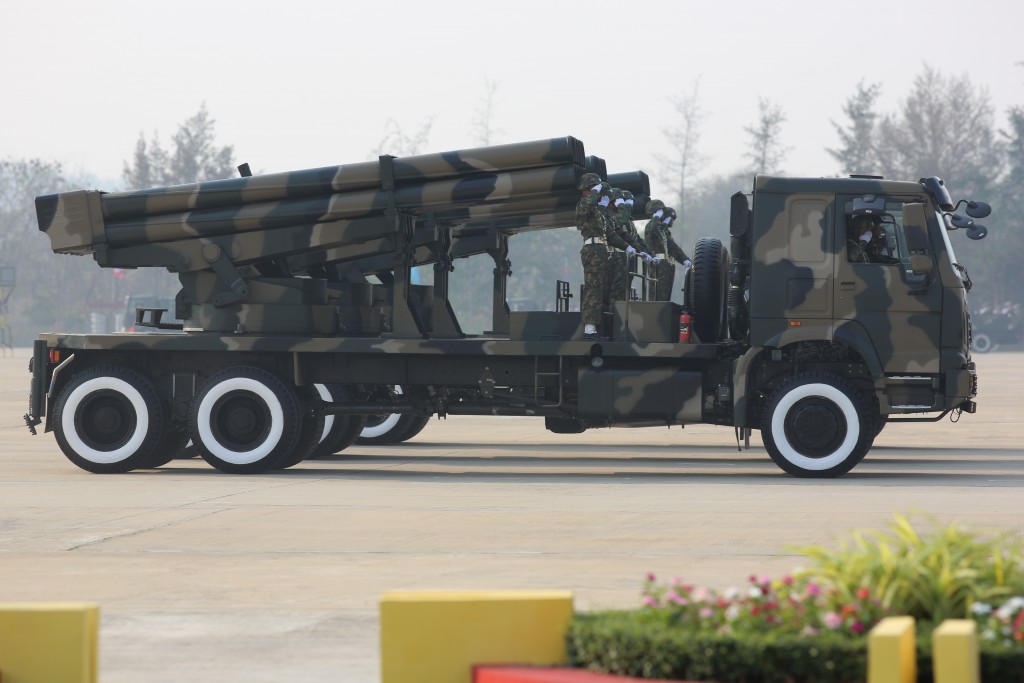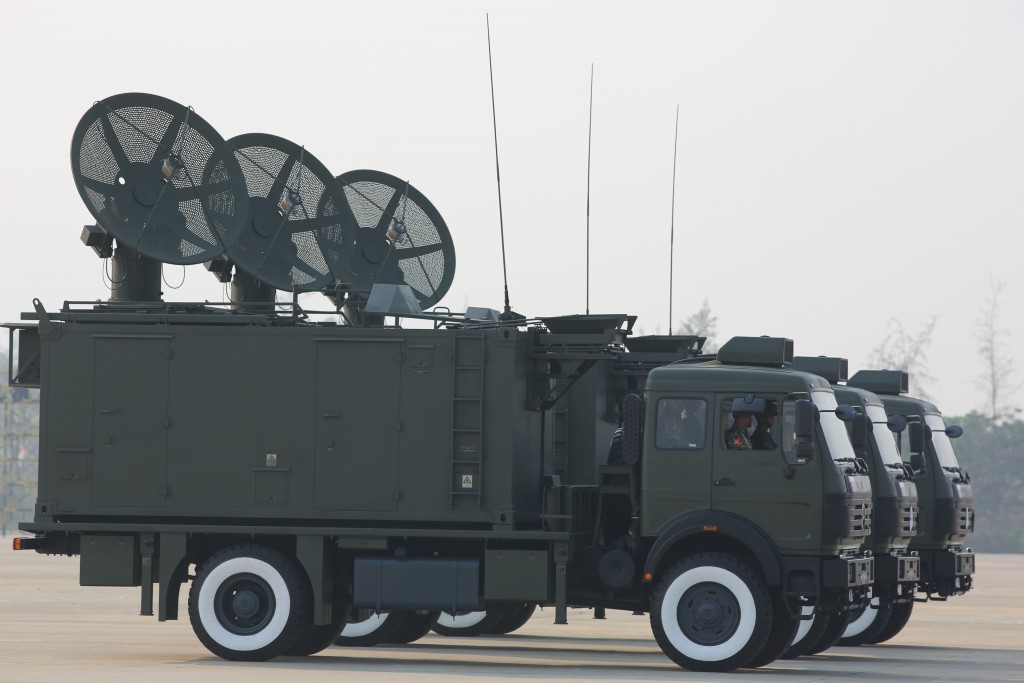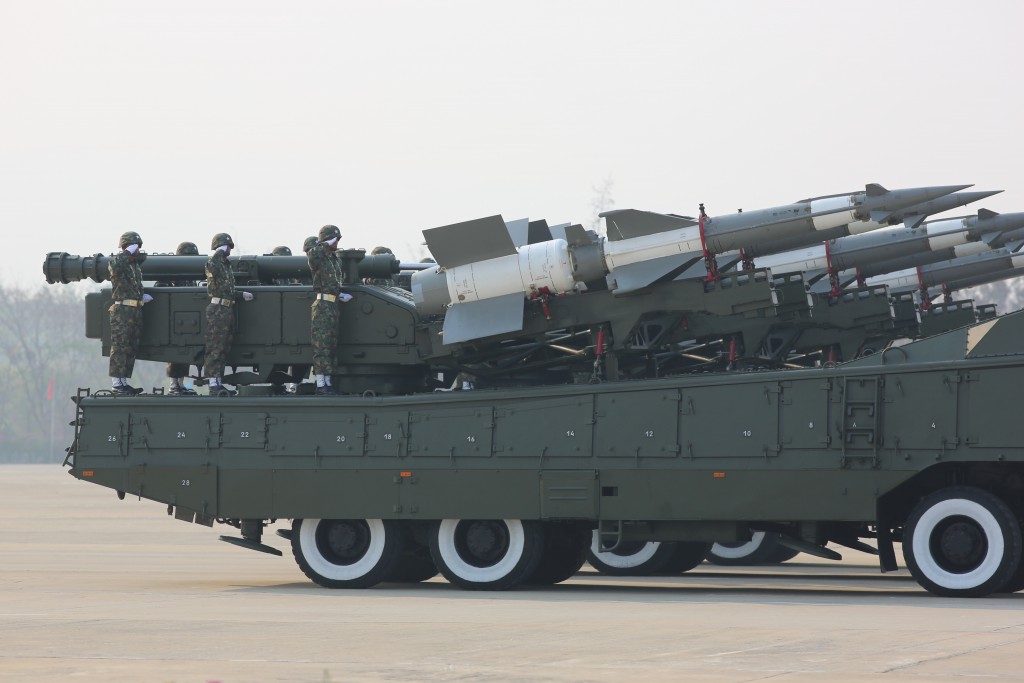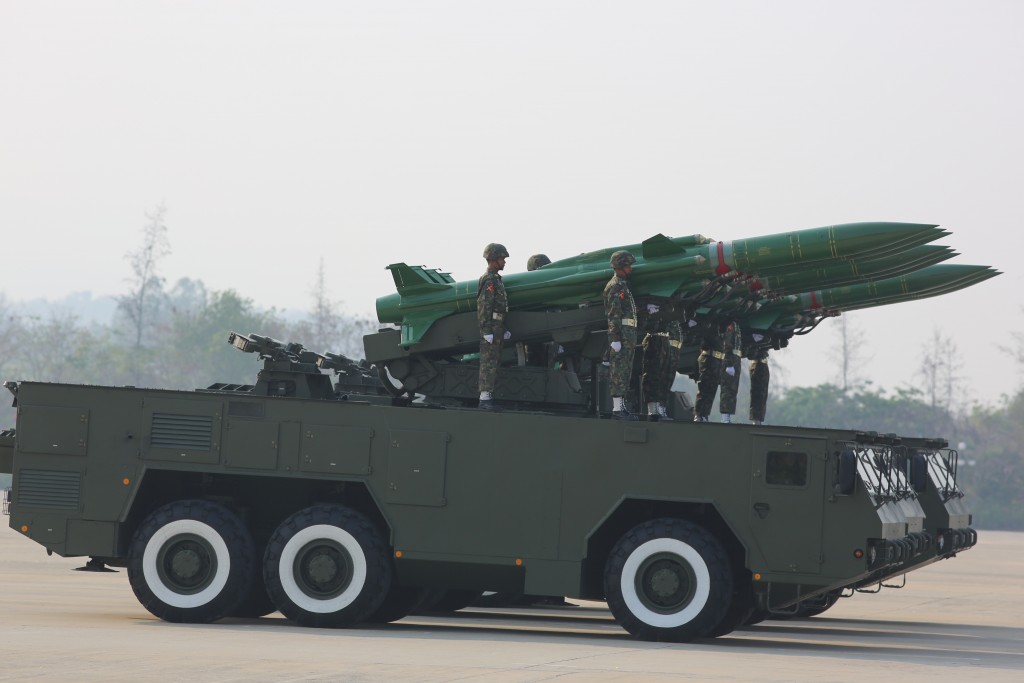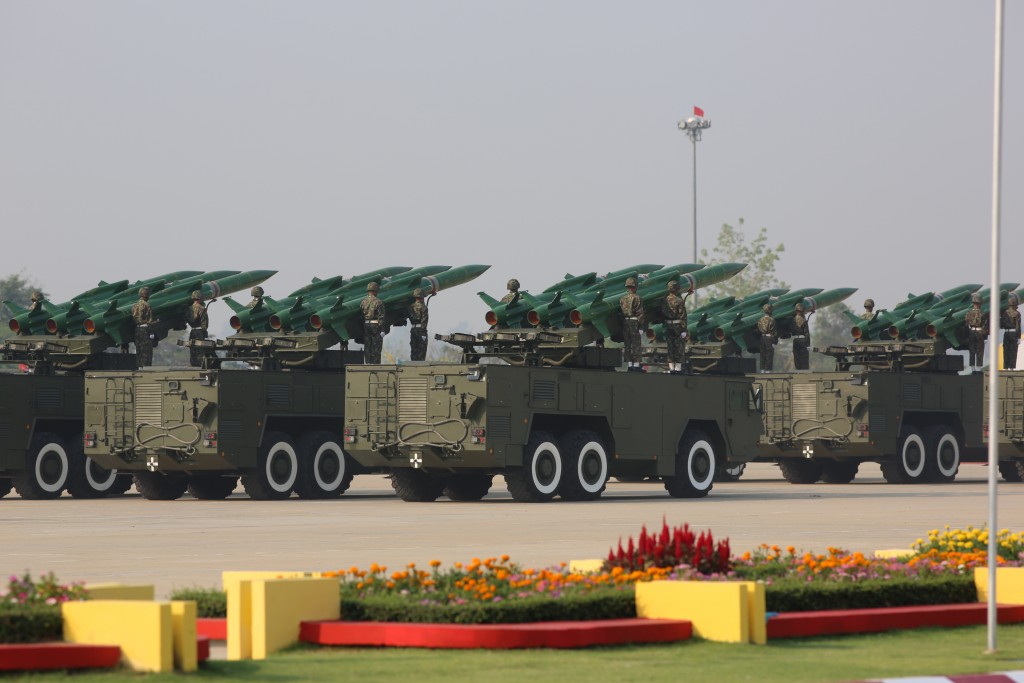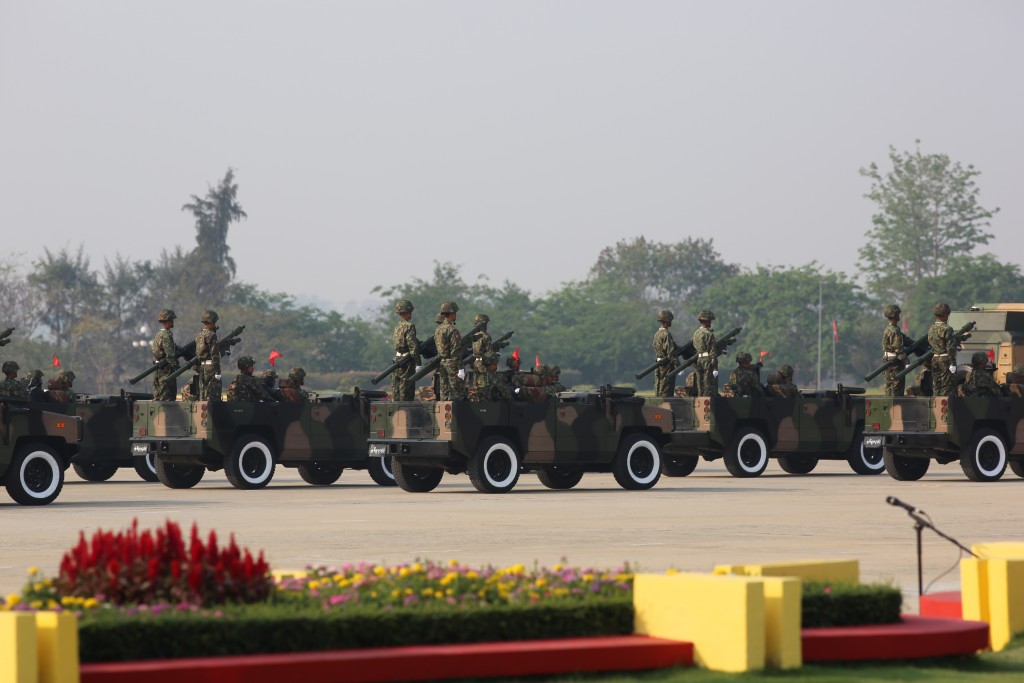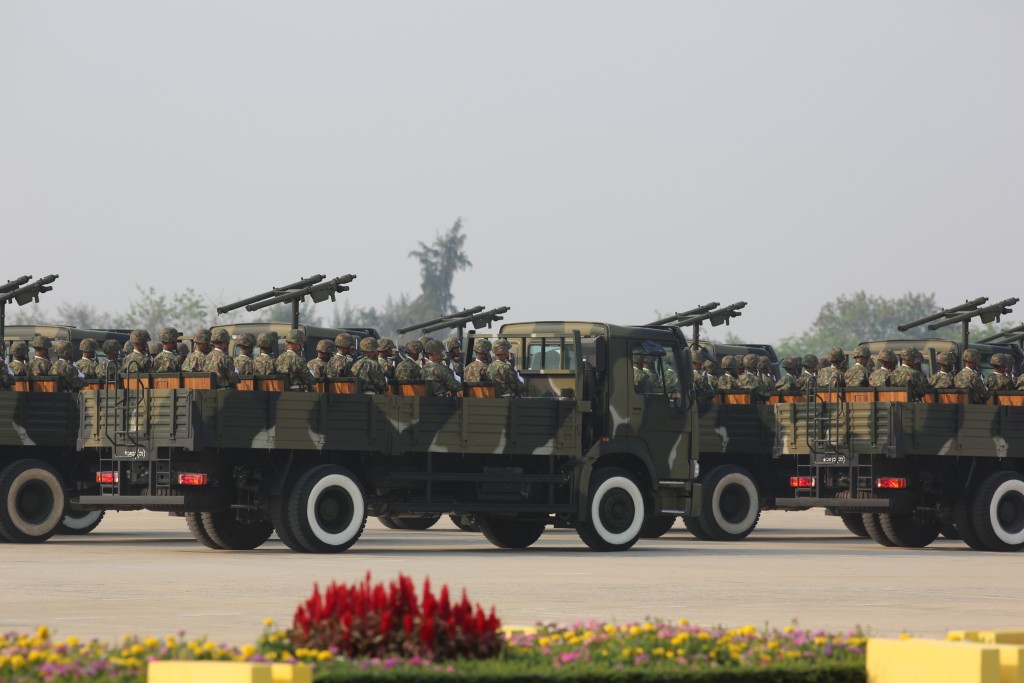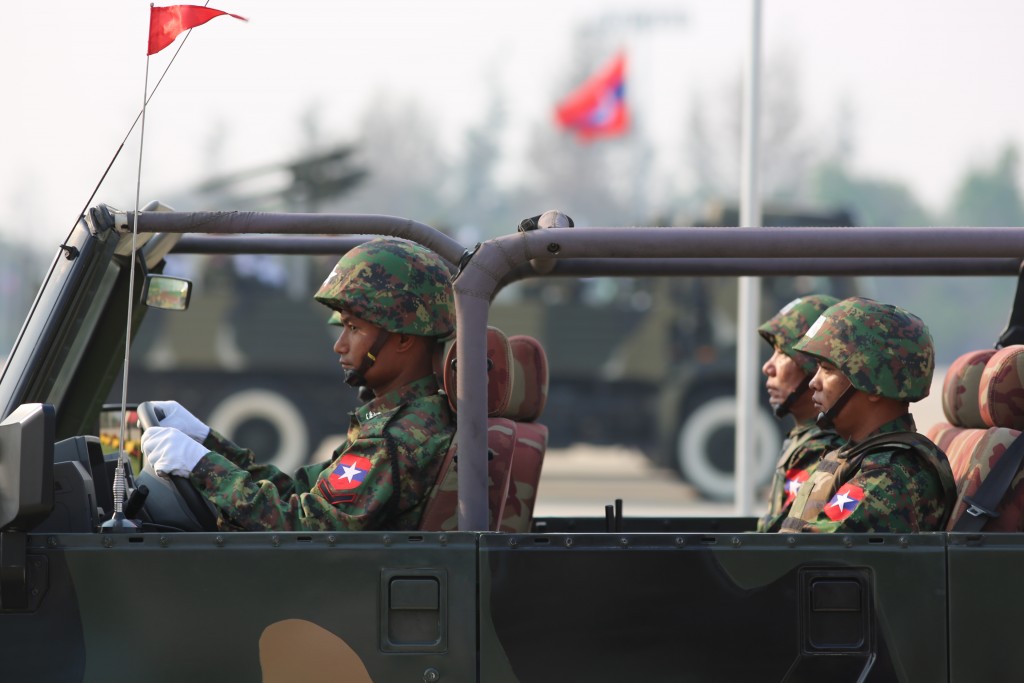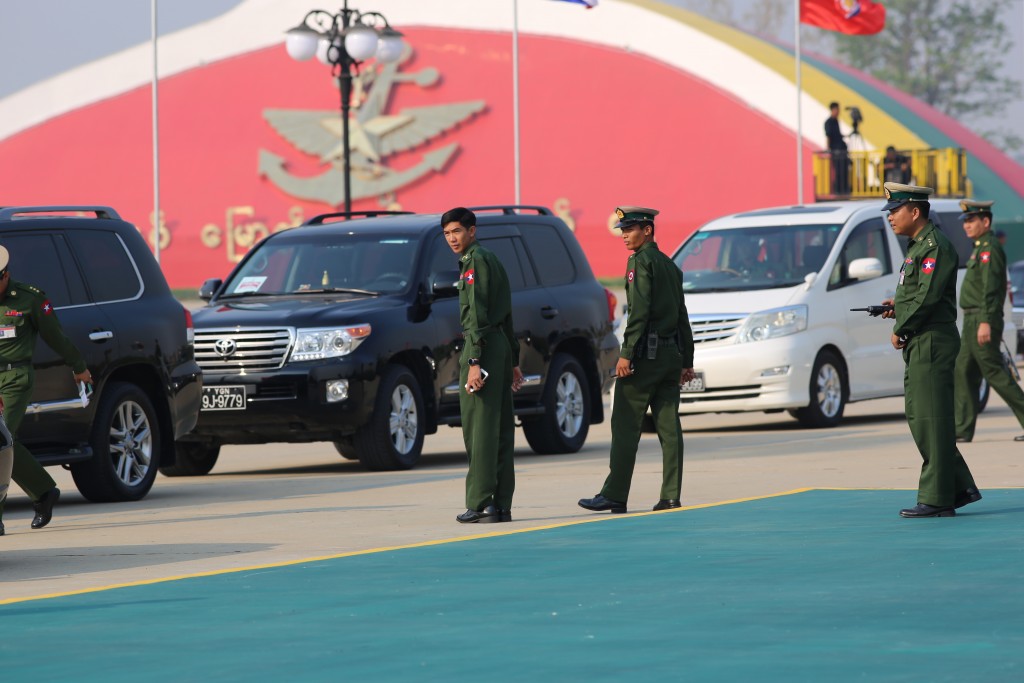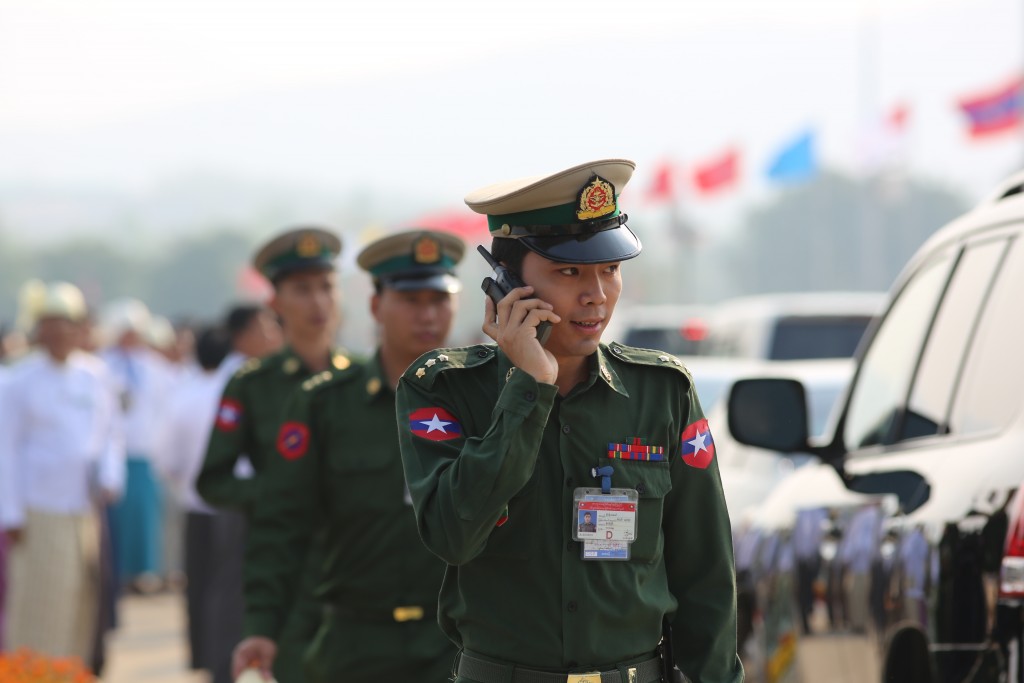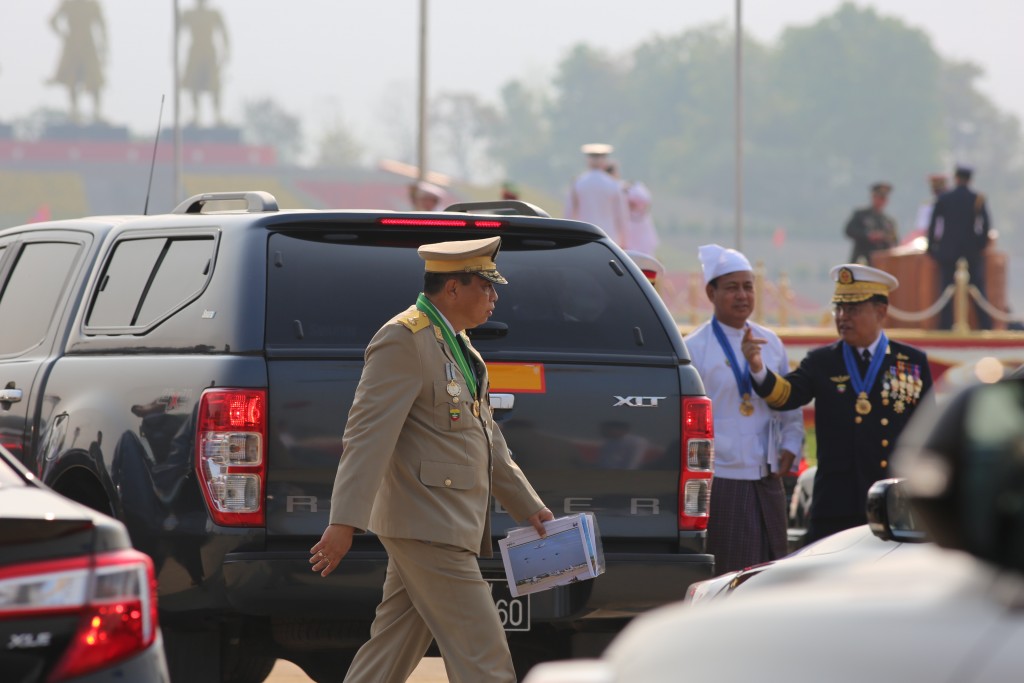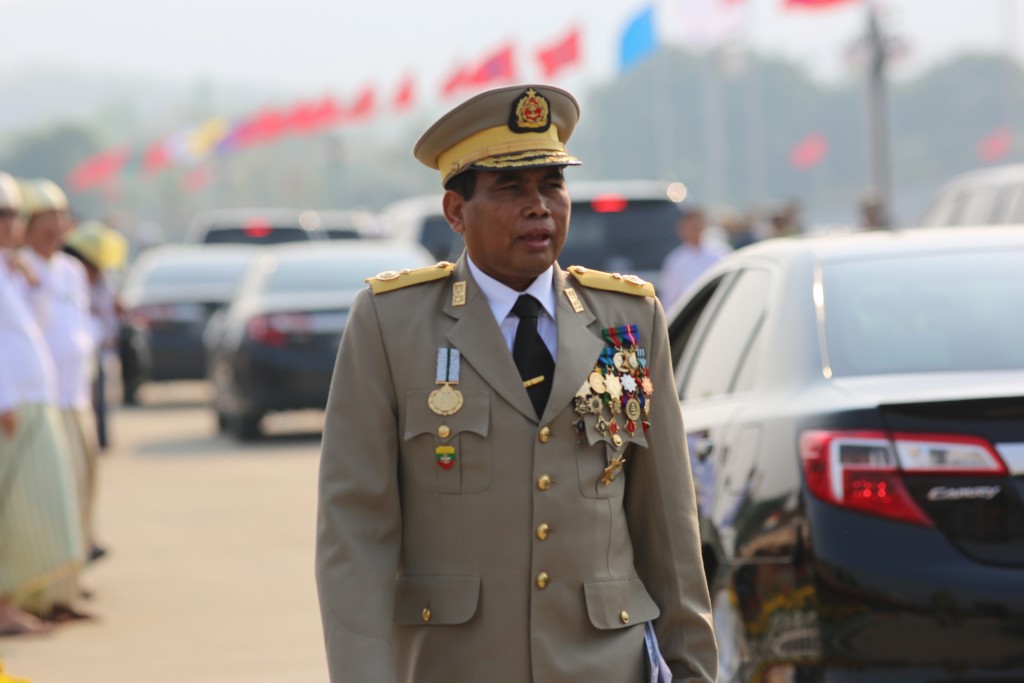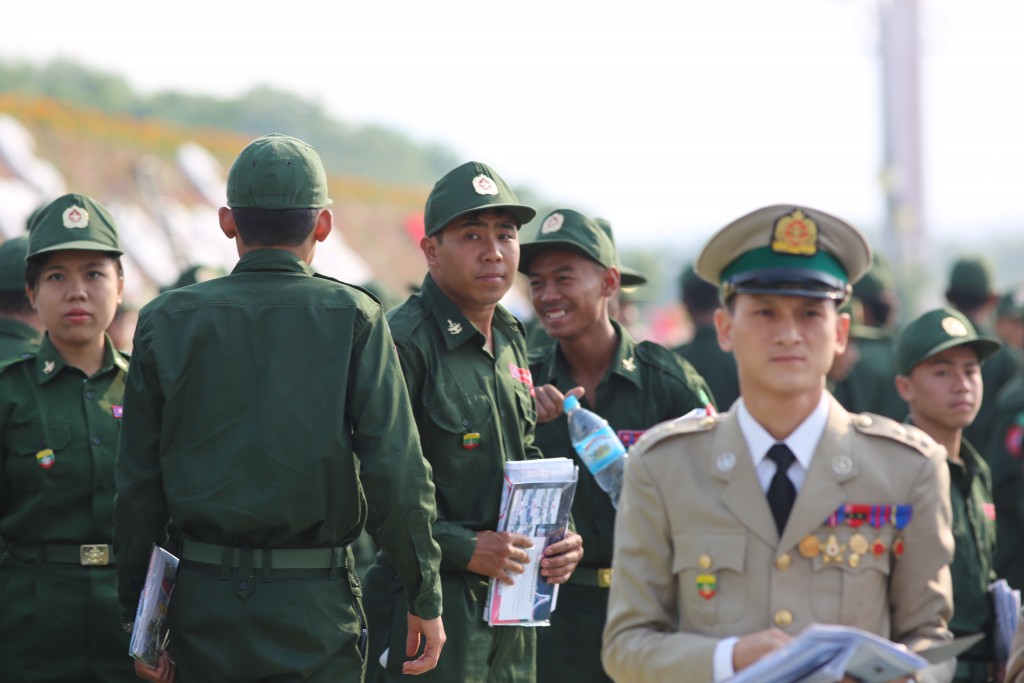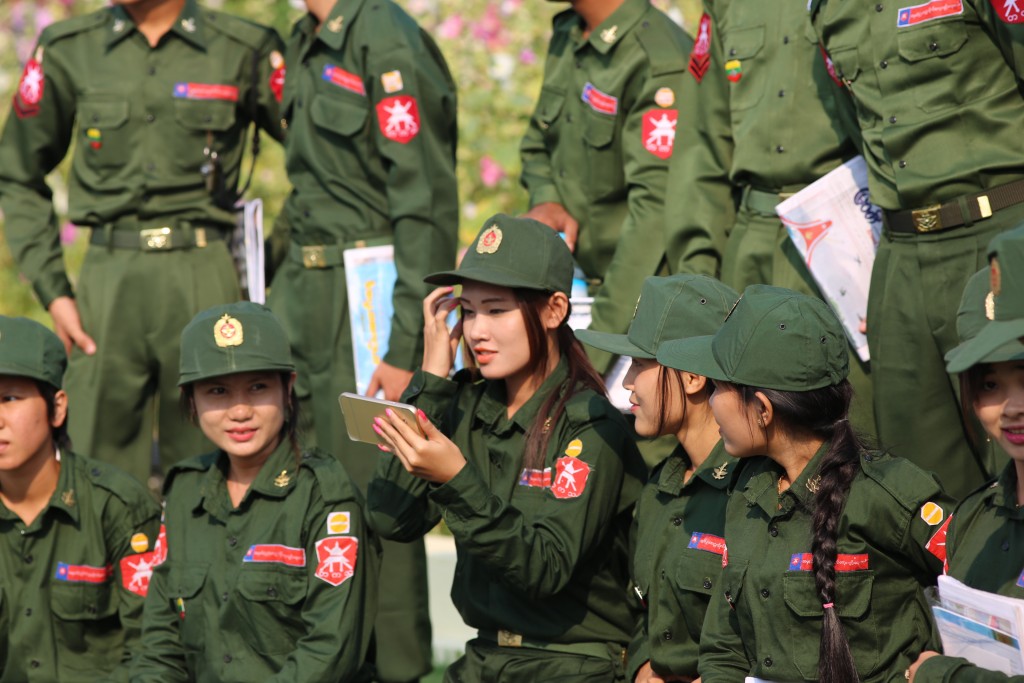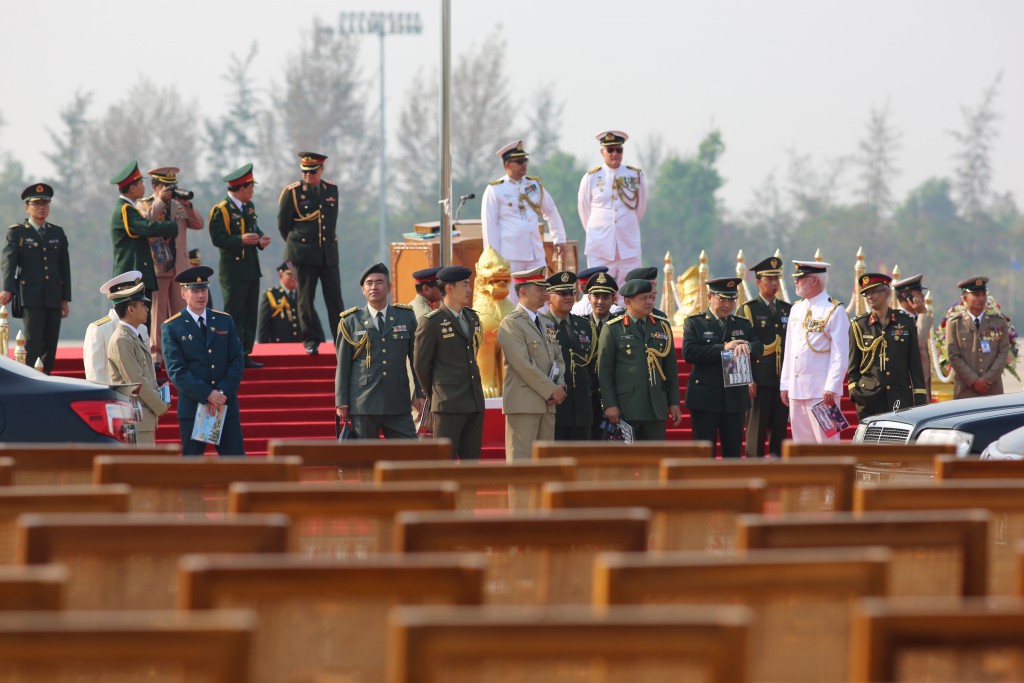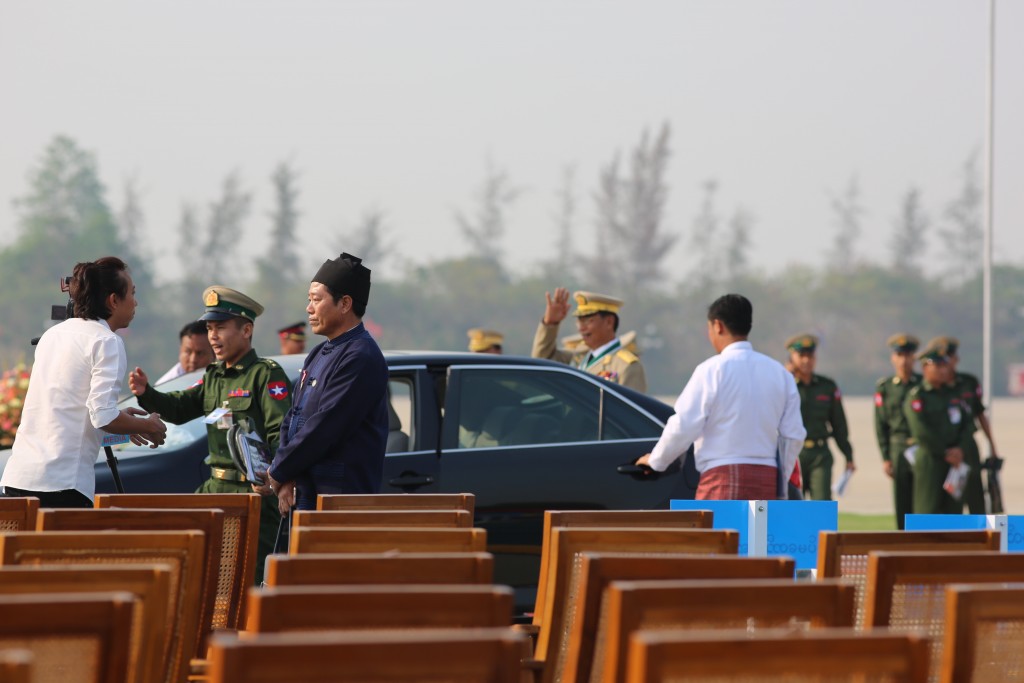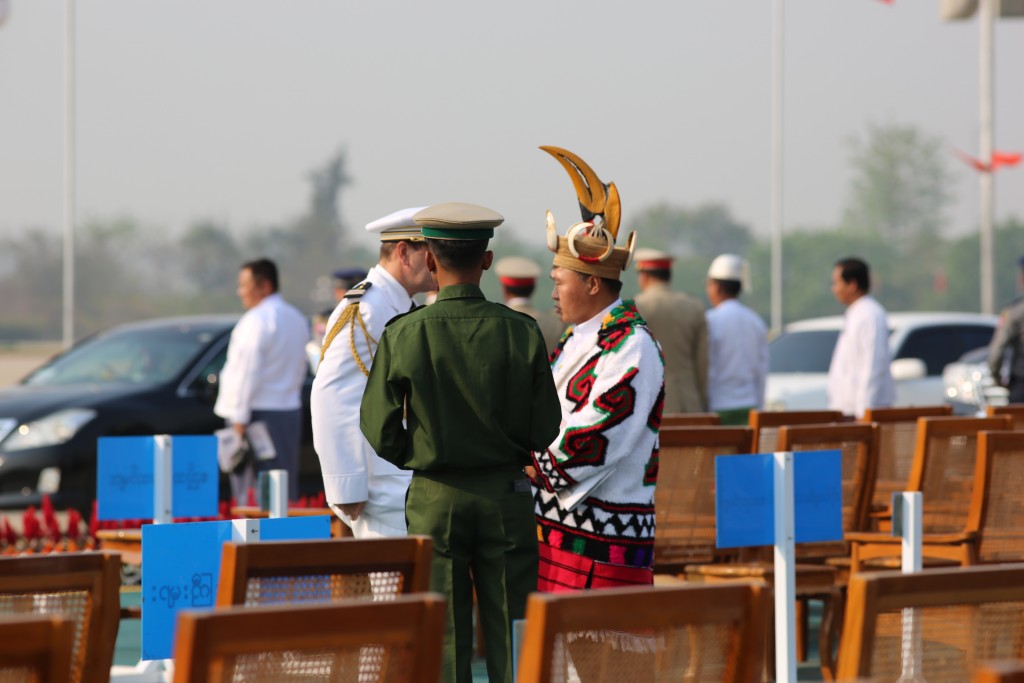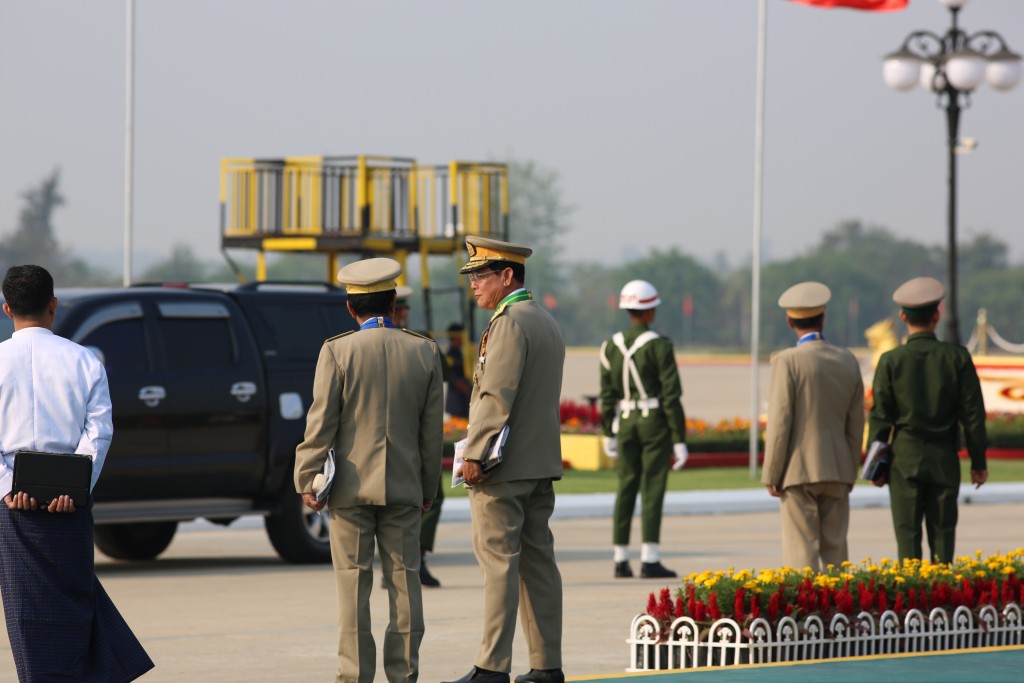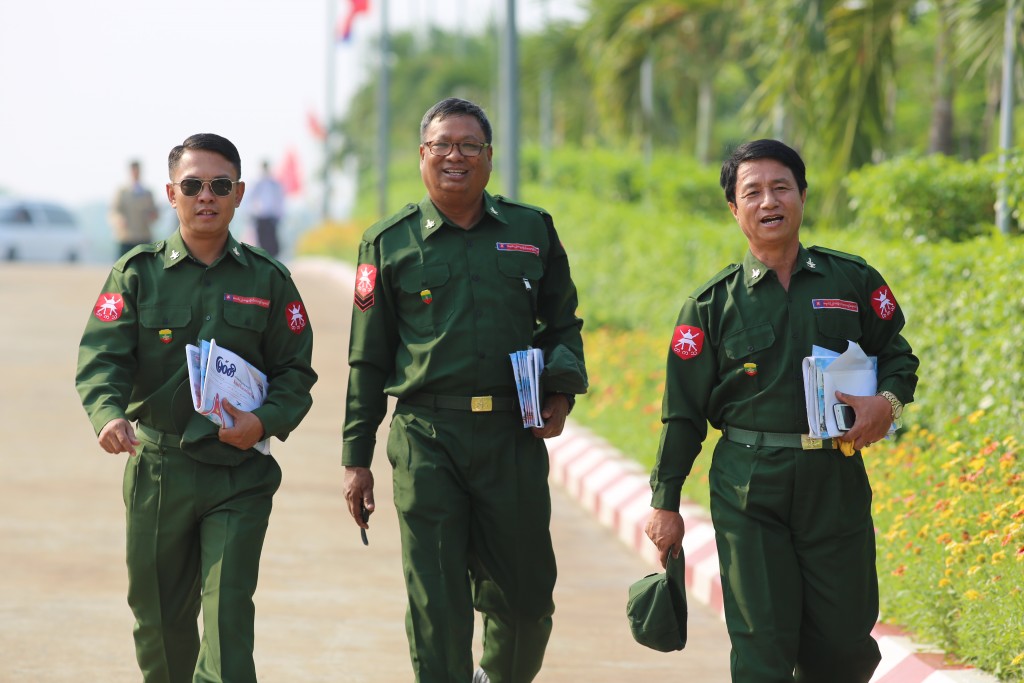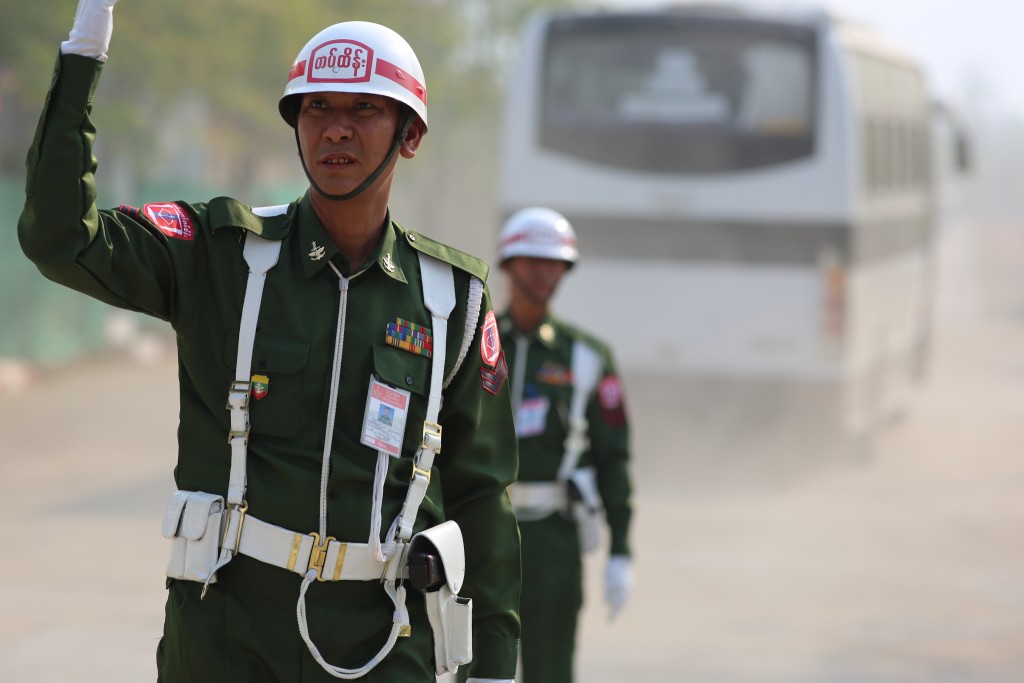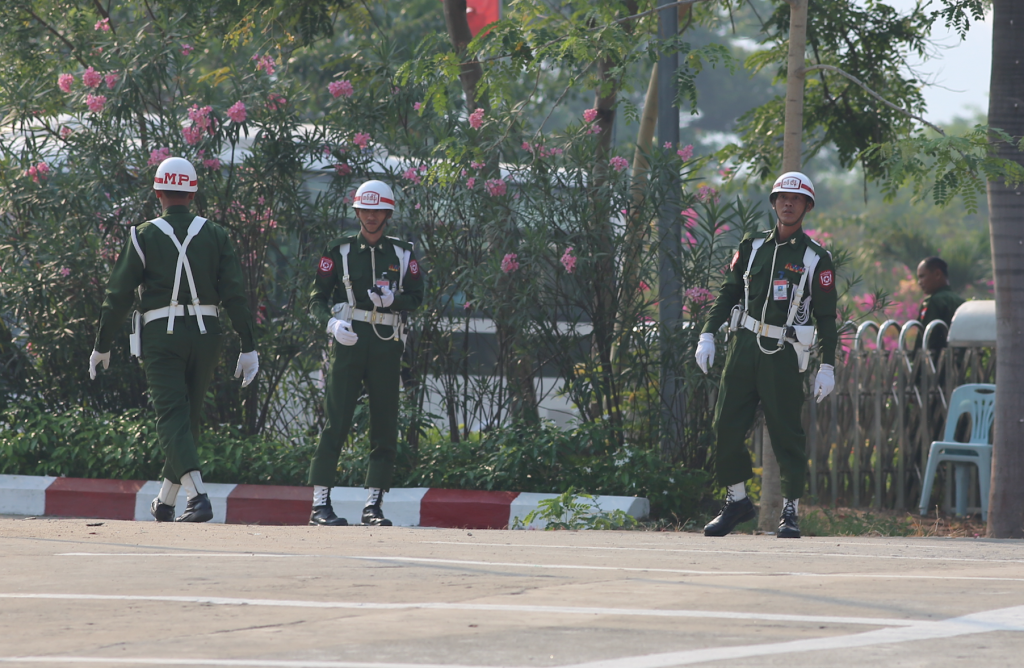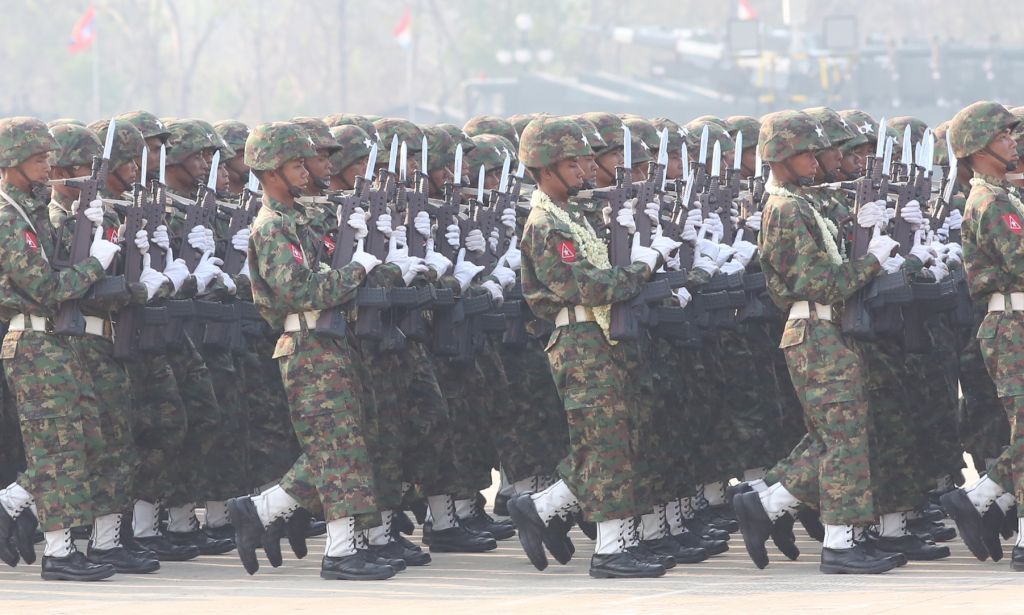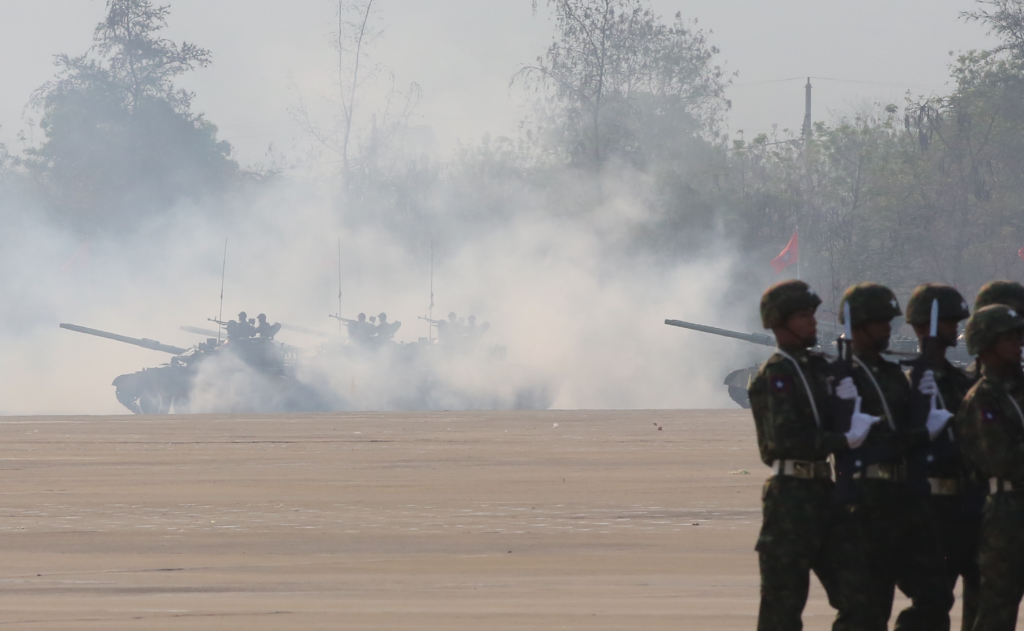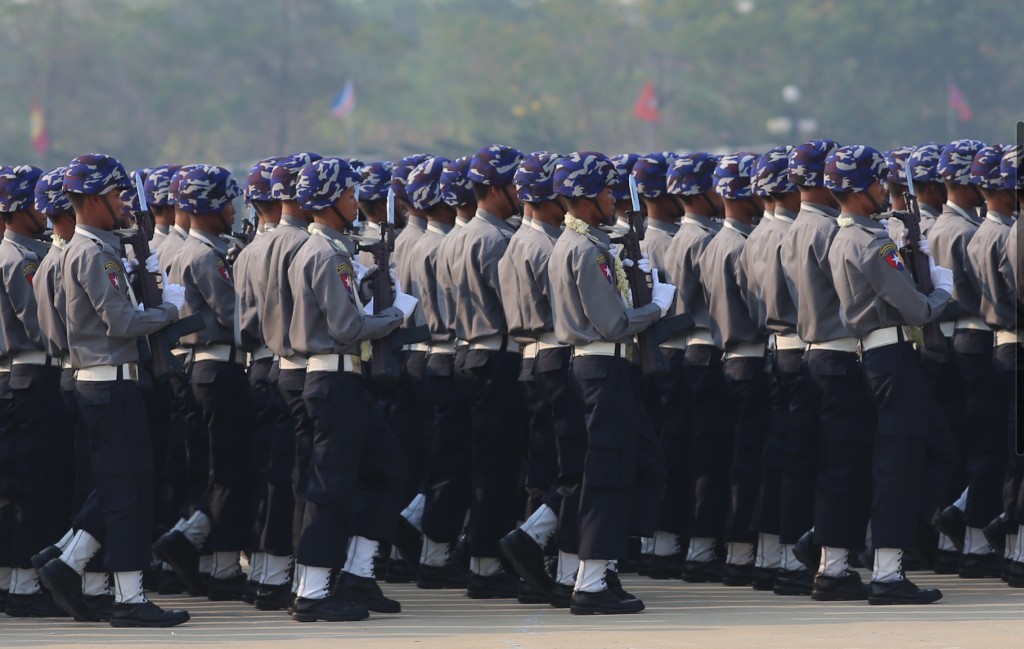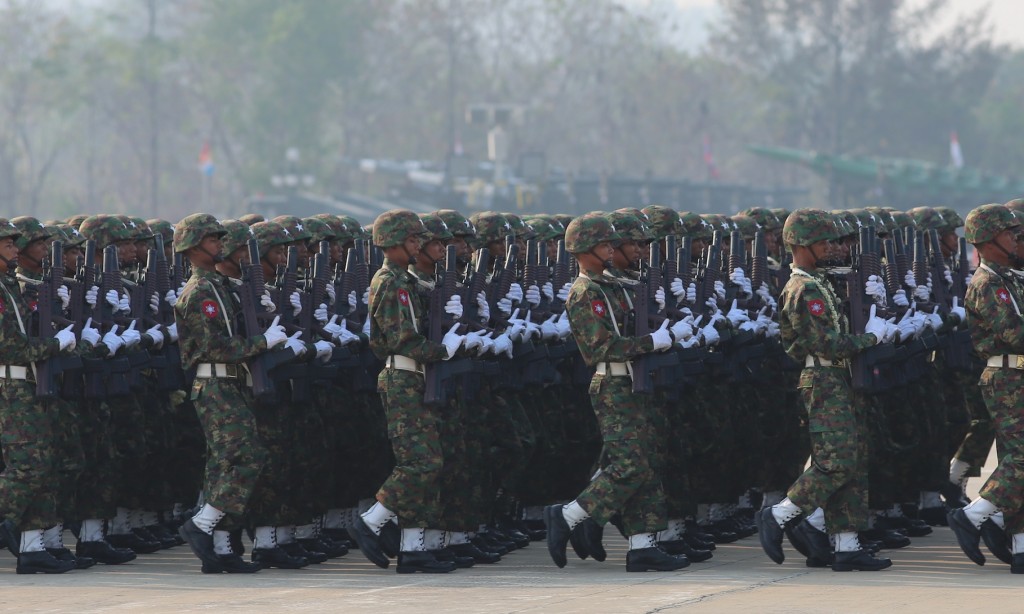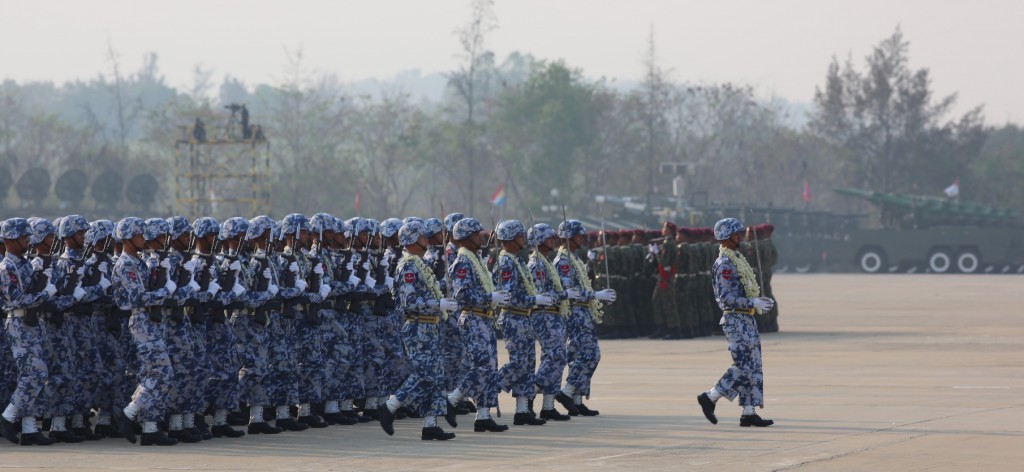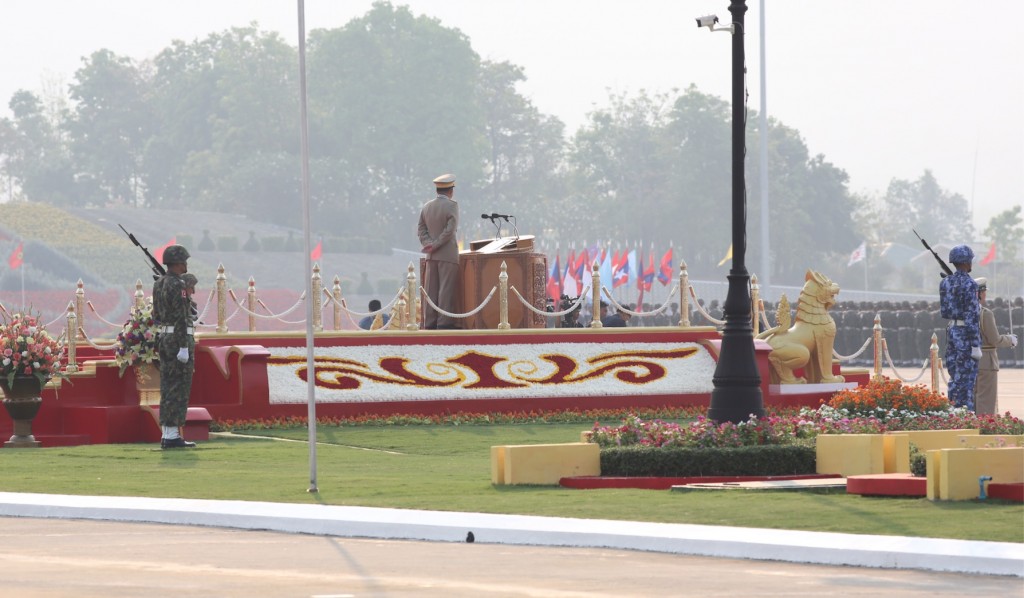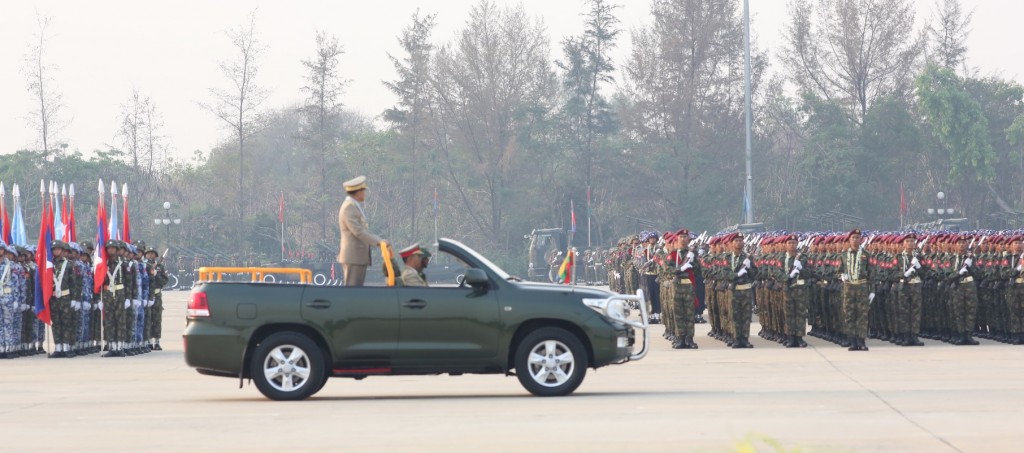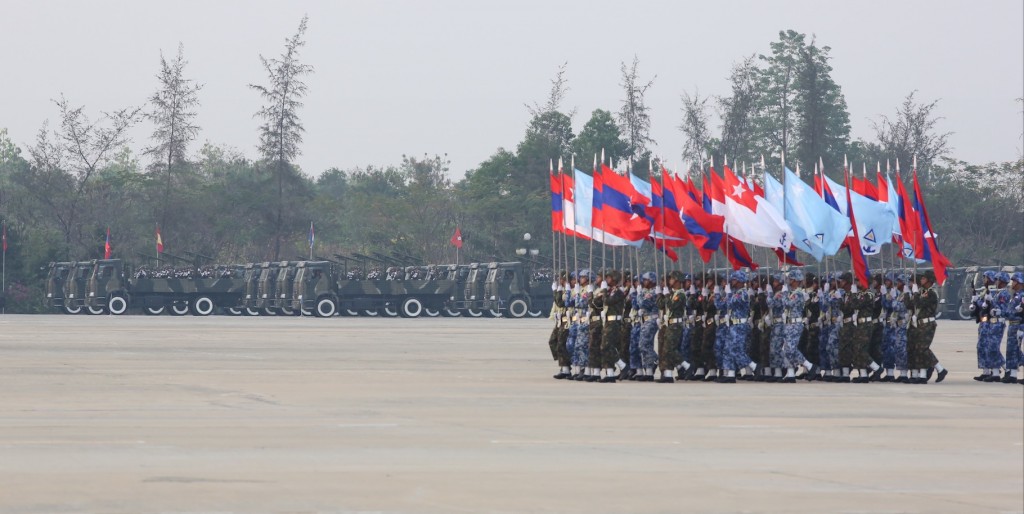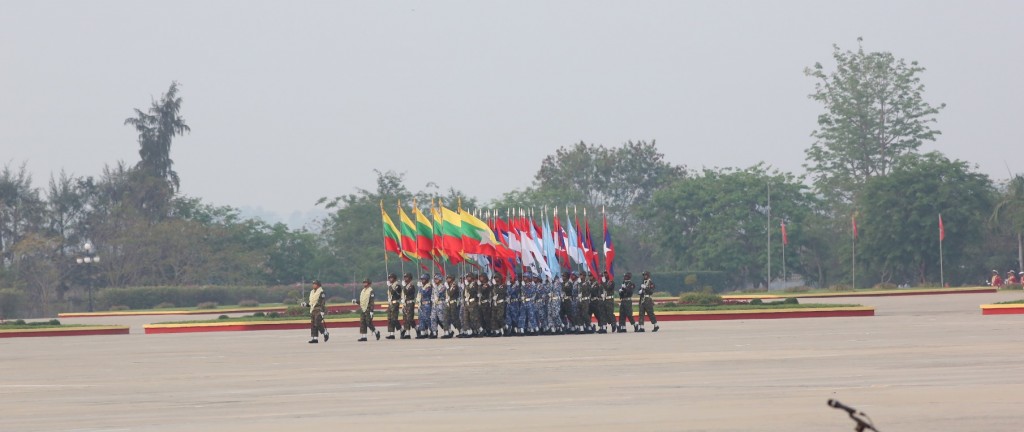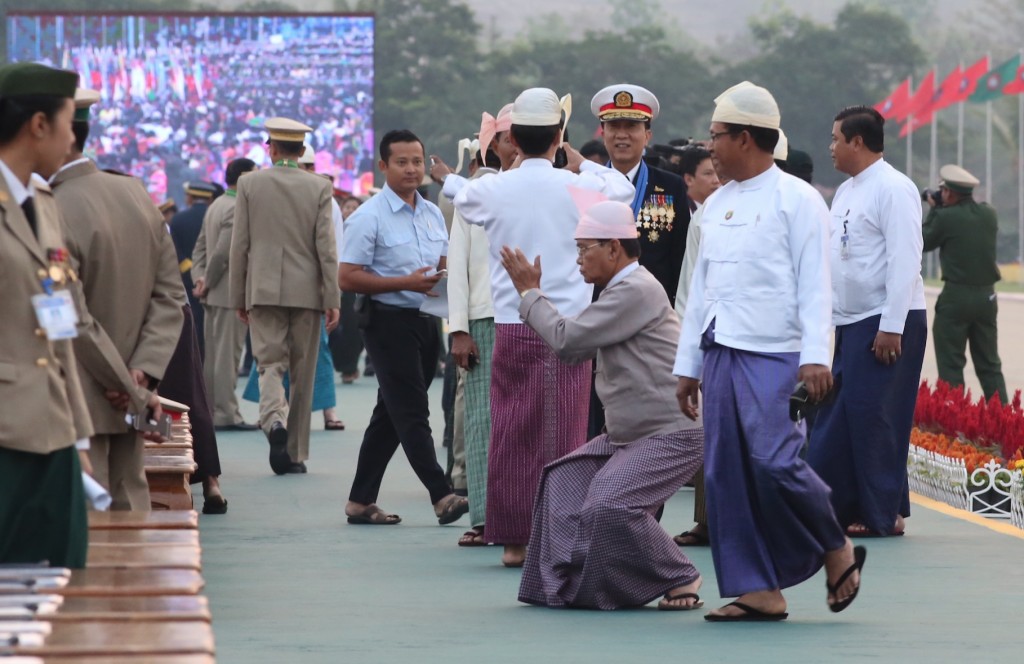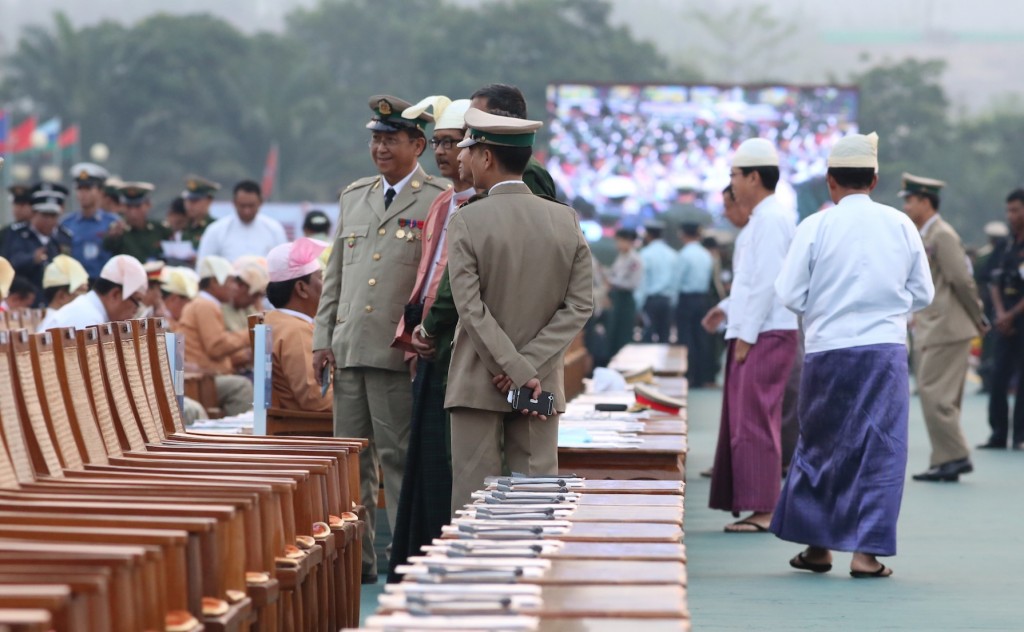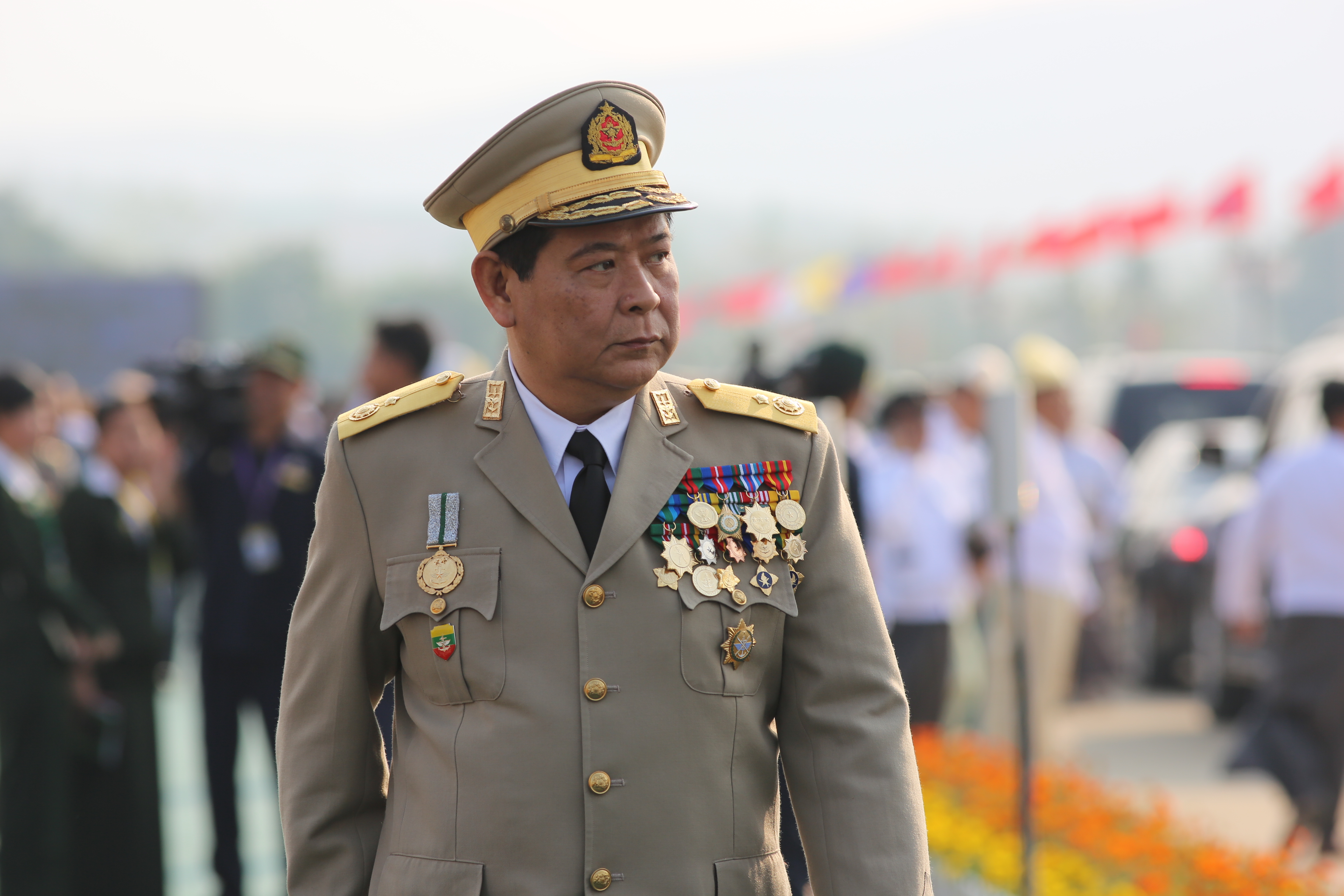
On Sunday, Myanmar’s 71st Armed Forces Day was held in Naypyitaw.
As the sun rose over the Shan mountains, more than 10,000 military, defence and security personnel and military equipment (including Navy Seals boats) marched onto the military parade ground.
In the audience were current and former generals; senior government ministers; speaker of the upper house U Khin Aung Myint; Information Minister U Ye Htut; National League for Democracy party members, including U Kyaw Thi Ha, Dr May Win Myint and U Say Win; and chair of the Arakan Party U Aye Maung. There were also students and soldiers from the Defence Services Academy, and members of the War Veterans Organisation.
Notably absent from the event was the former general and President U Thein Sein, former speaker of the lower house U Shwe Mann, and the National League for Democracy’s party leader Daw Aung San Suu Kyi.
This year’s military parade took place just days before the military-supported Union Solidarity and Development Party will hand government over to Suu Kyi’s National League for Democracy. A ceremony will be held at Parliament House (the Hluttaw) on 30 March.
While the Commander-in-Chief of Defence Services Senior General Min Aung Hlaing has agreed to cooperate with Suu Kyi, the key message from this year’s Armed Forces Day is that the armed forces will continue to play military and political roles in Myanmar’s national affairs.
The Commander-in-Chief of the Defence Forces Senior General Min Aung Hlaing toured the parade ground from the back of his topless army vehicle. Returning to the alter and standing beneath a golden statue of Myanmar’s three warrior kings, the C-i-C delivered his speech.
As you all know, in 2015, the Tatmadaw cooperated with the government and the people for the successful holding of a free and fair general election for the second term of a multi-party democracy system. The nature of democracy constitutes holding elections and voting for executive and legislative affairs. There could be the winner and winning party as well as the loser and the losing party. In this regard, it is needed to scrutinise whether these processes are fair and just or in accord with the prescribed law.
The two main hindrances in democratisation are lack of abiding by the rule of law, regulation and the presence of armed insurgencies. These could lead to chaotic democracy.
Accordingly:
… the Tatmadaw has to be present as the leading role in the national politics with regards to the ways we stand along the history and the critical situations of the country.
When we observe the national political assignations conferred by the constitution to the Tatmadaw, it has to be vividly seen that it is to uphold and uplift the national interest.
Olivia Cable is at the ANU Coral Bell School of Asia Pacific Affairs. Her research focuses on politics and society in Naypyitaw. Twitter: @ojcable.
 Facebook
Facebook  Twitter
Twitter  Soundcloud
Soundcloud  Youtube
Youtube  Rss
Rss 